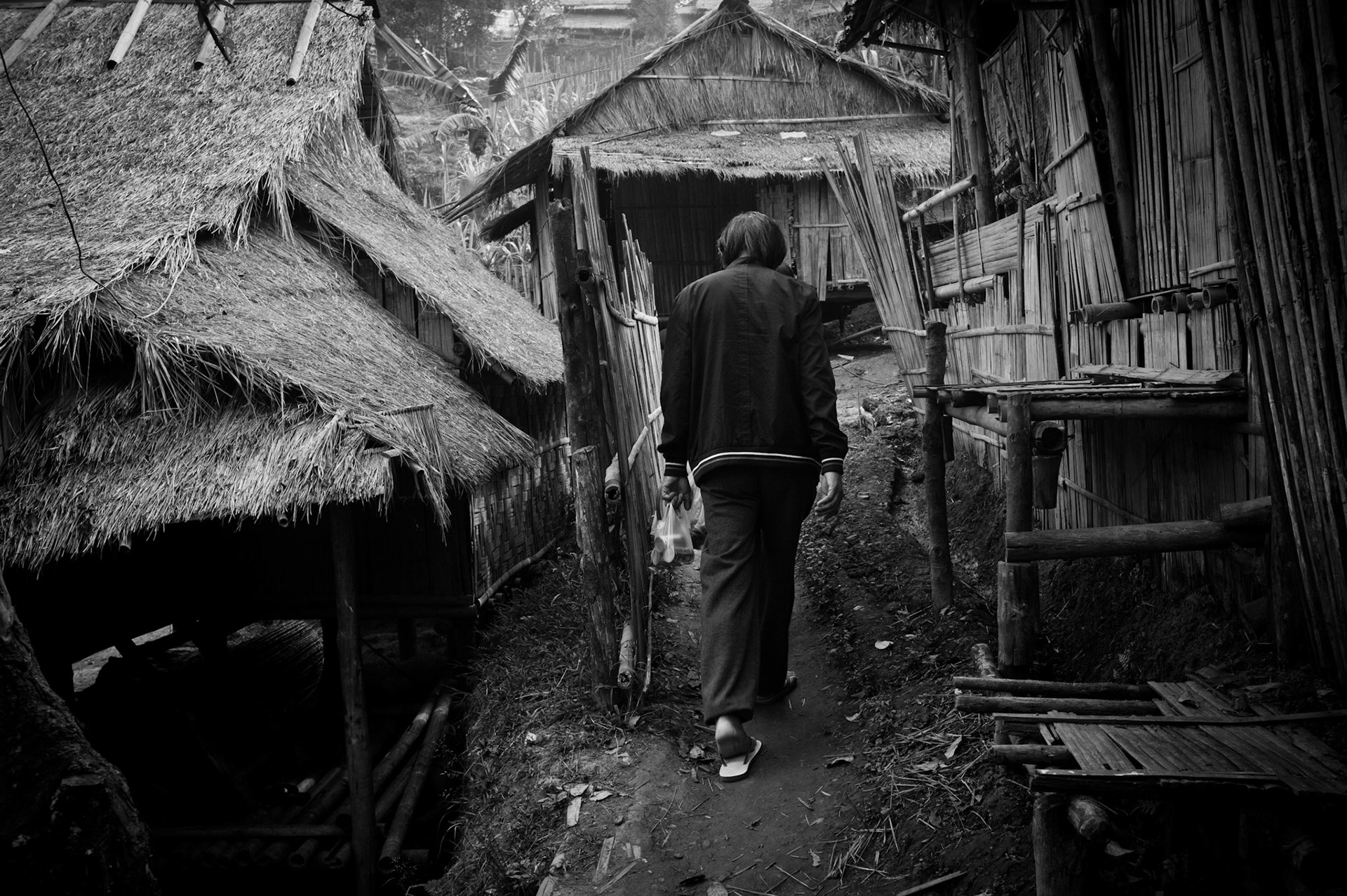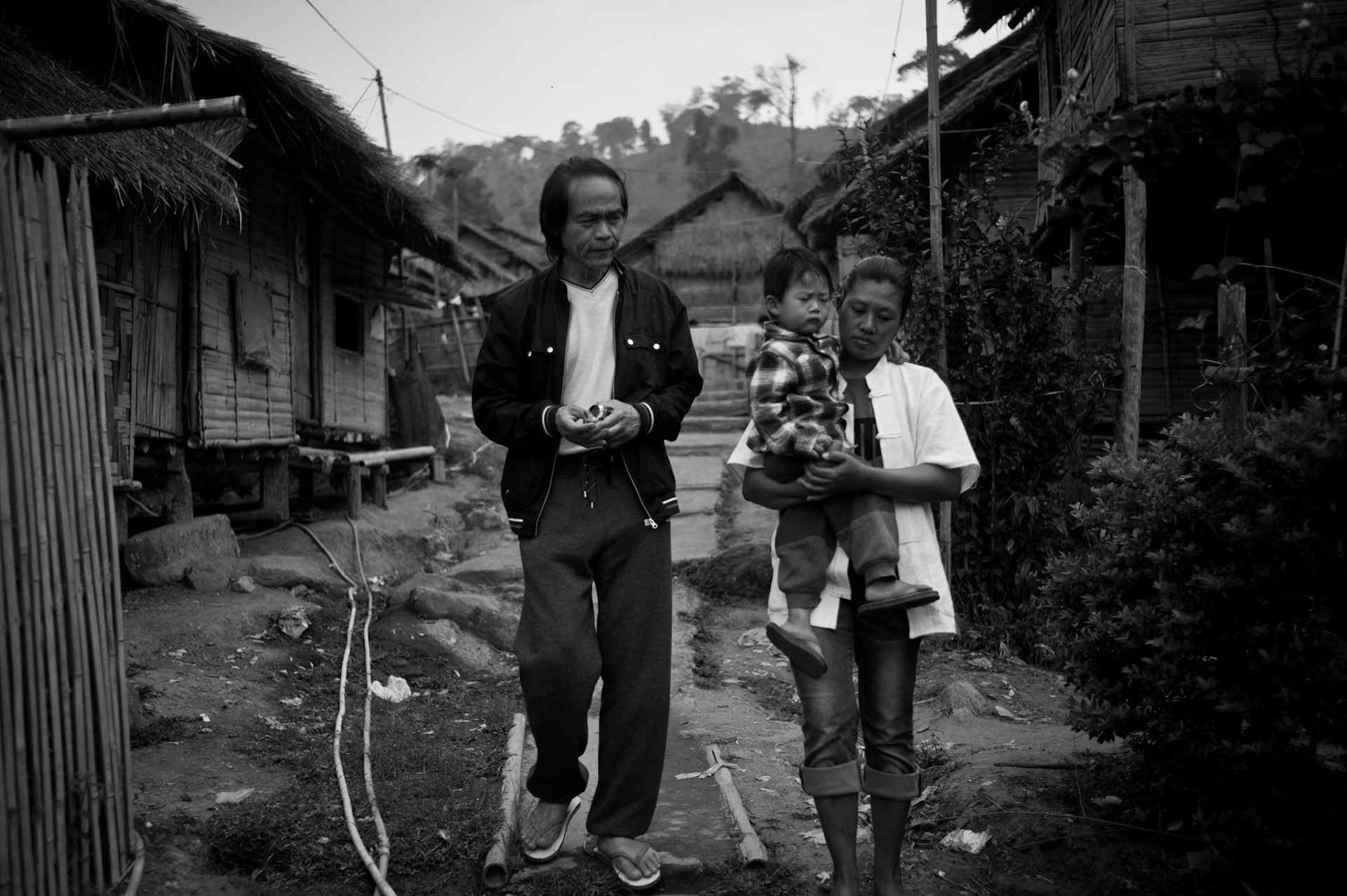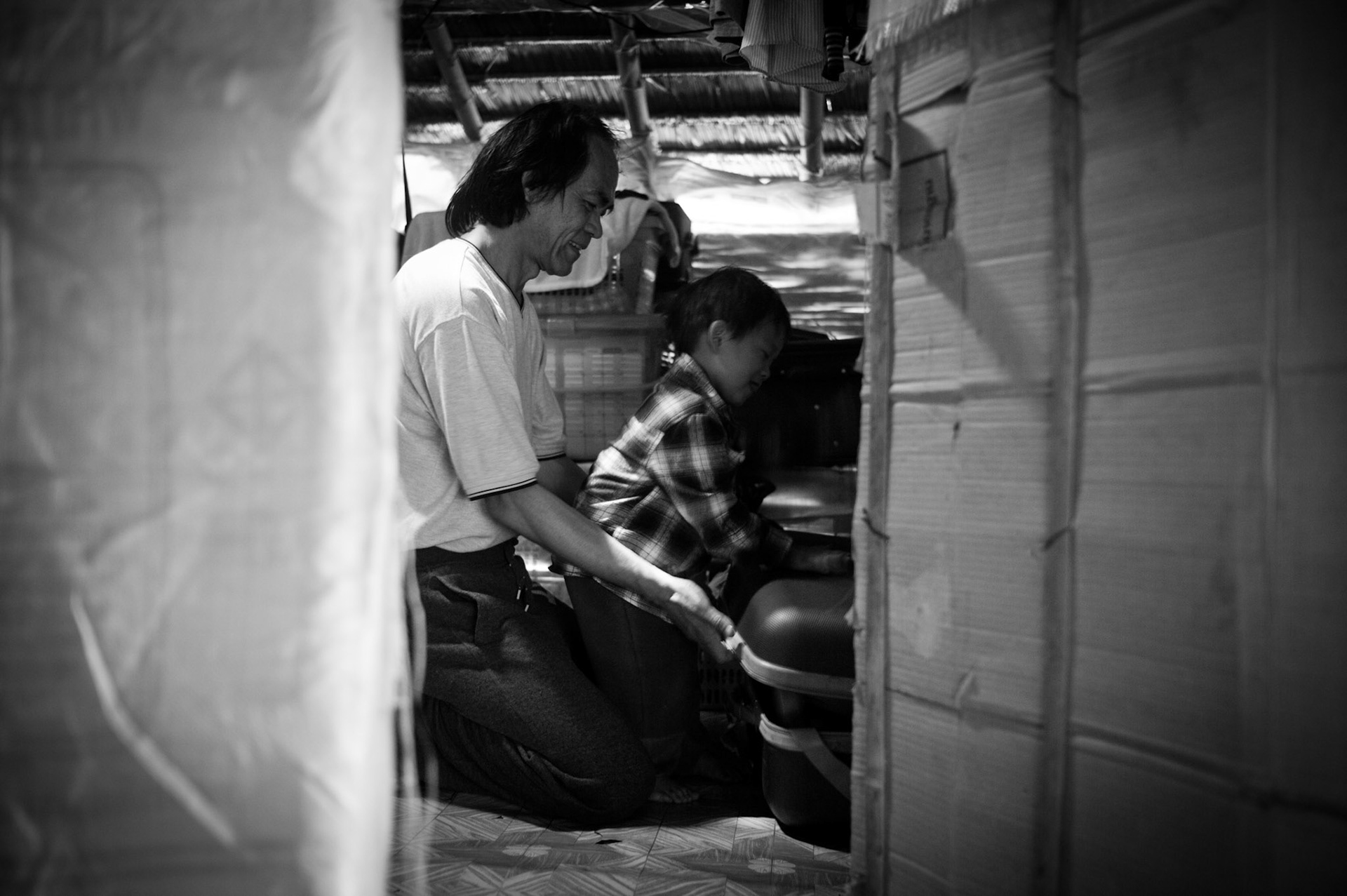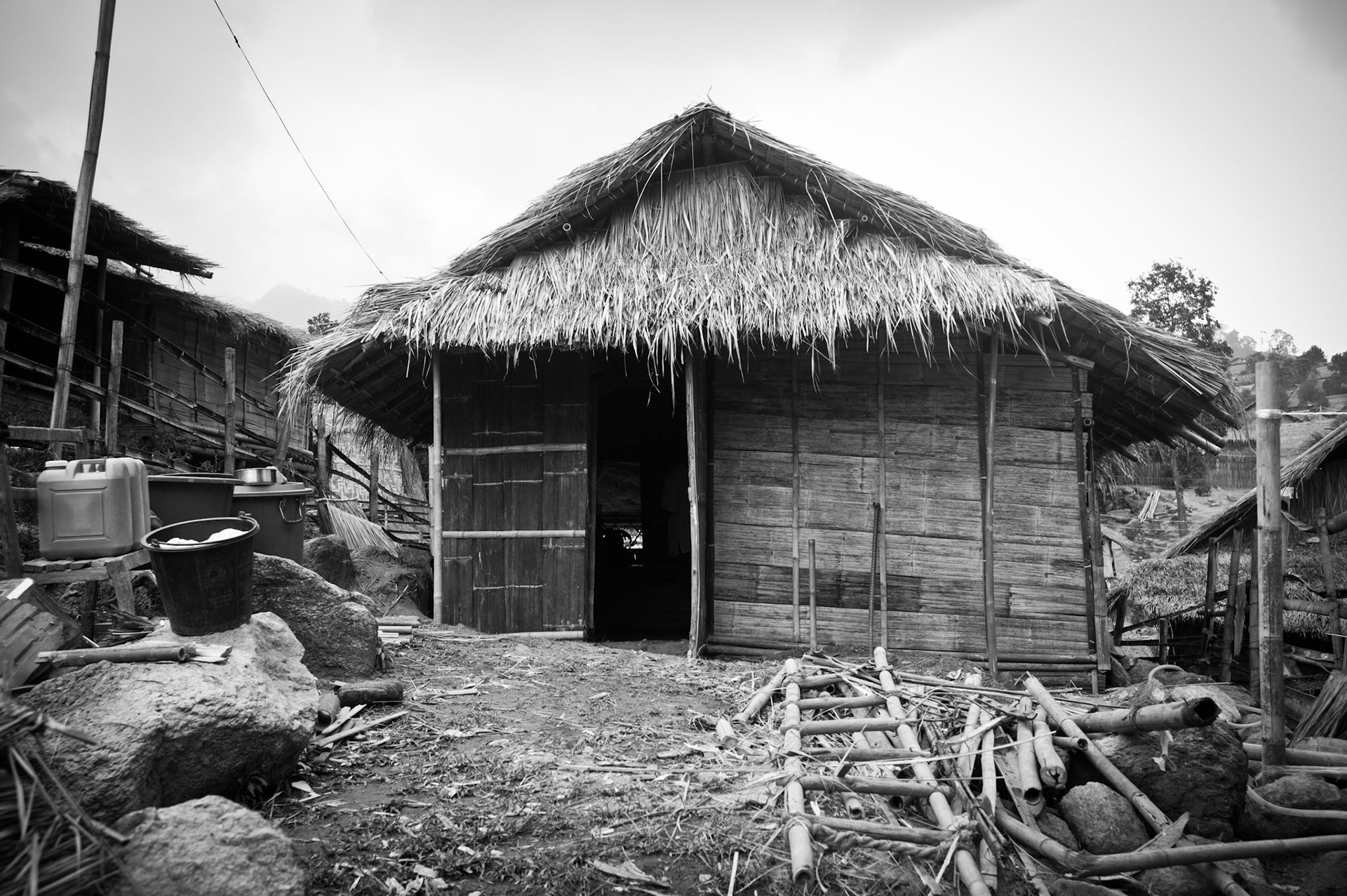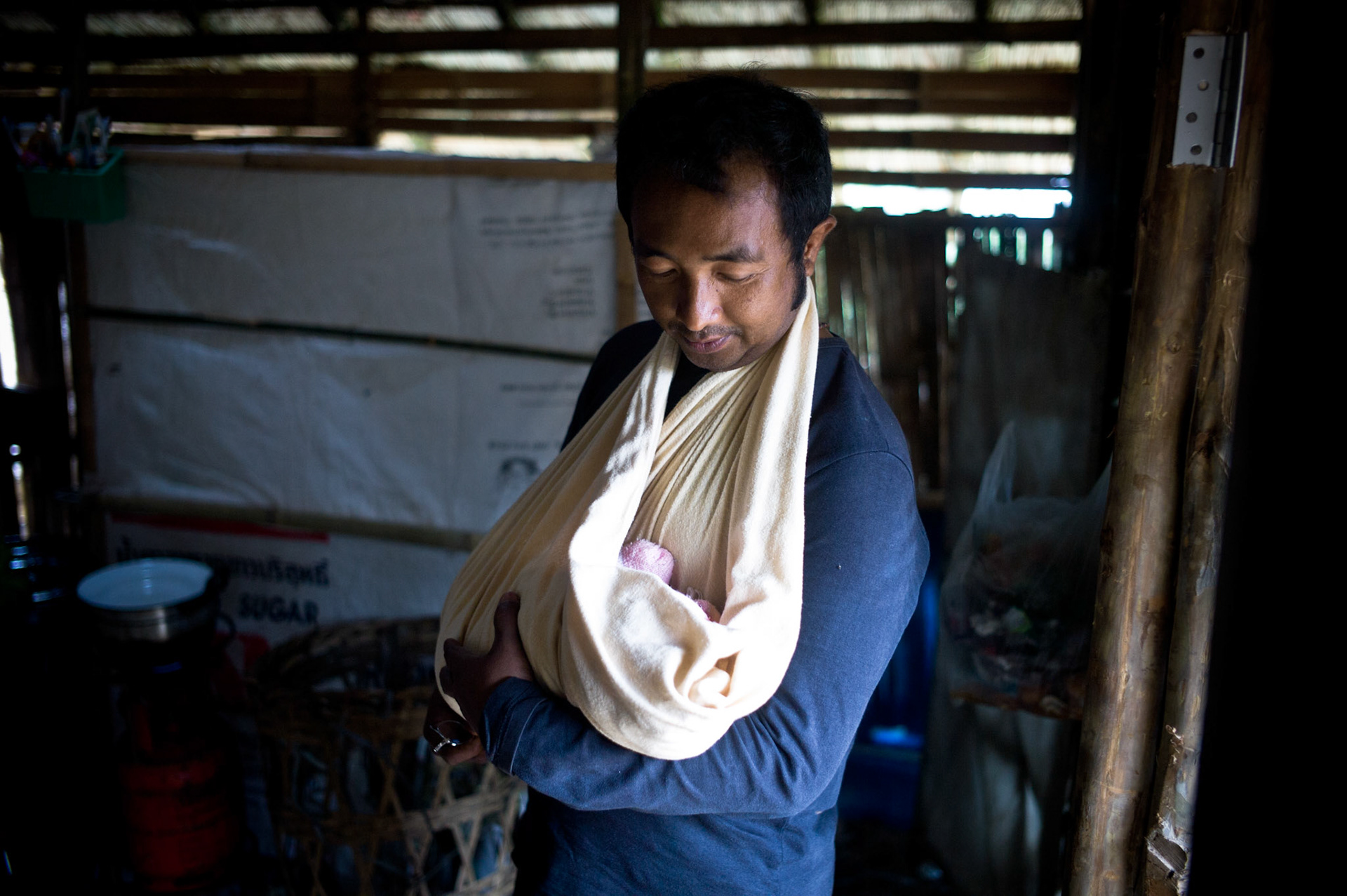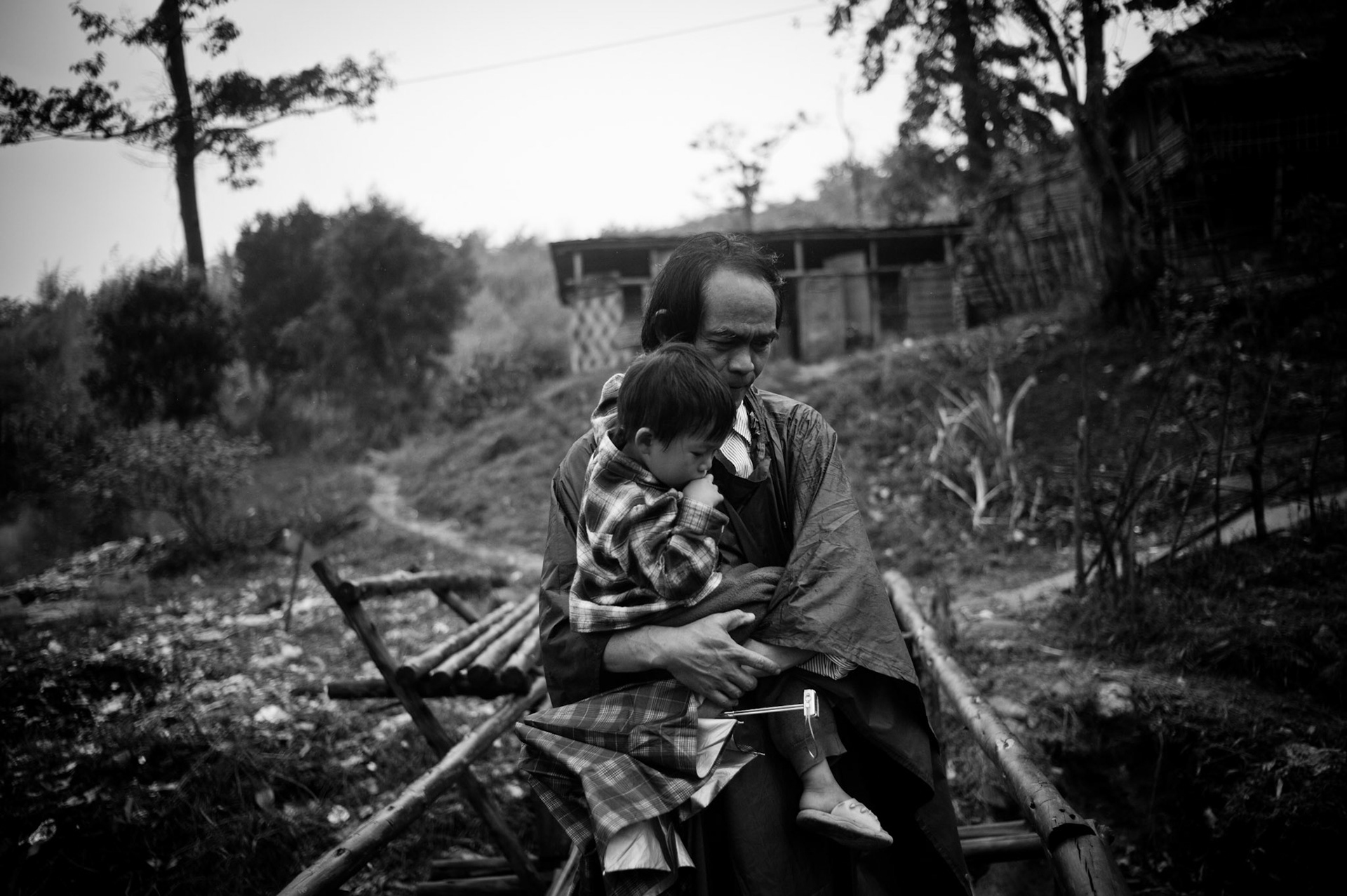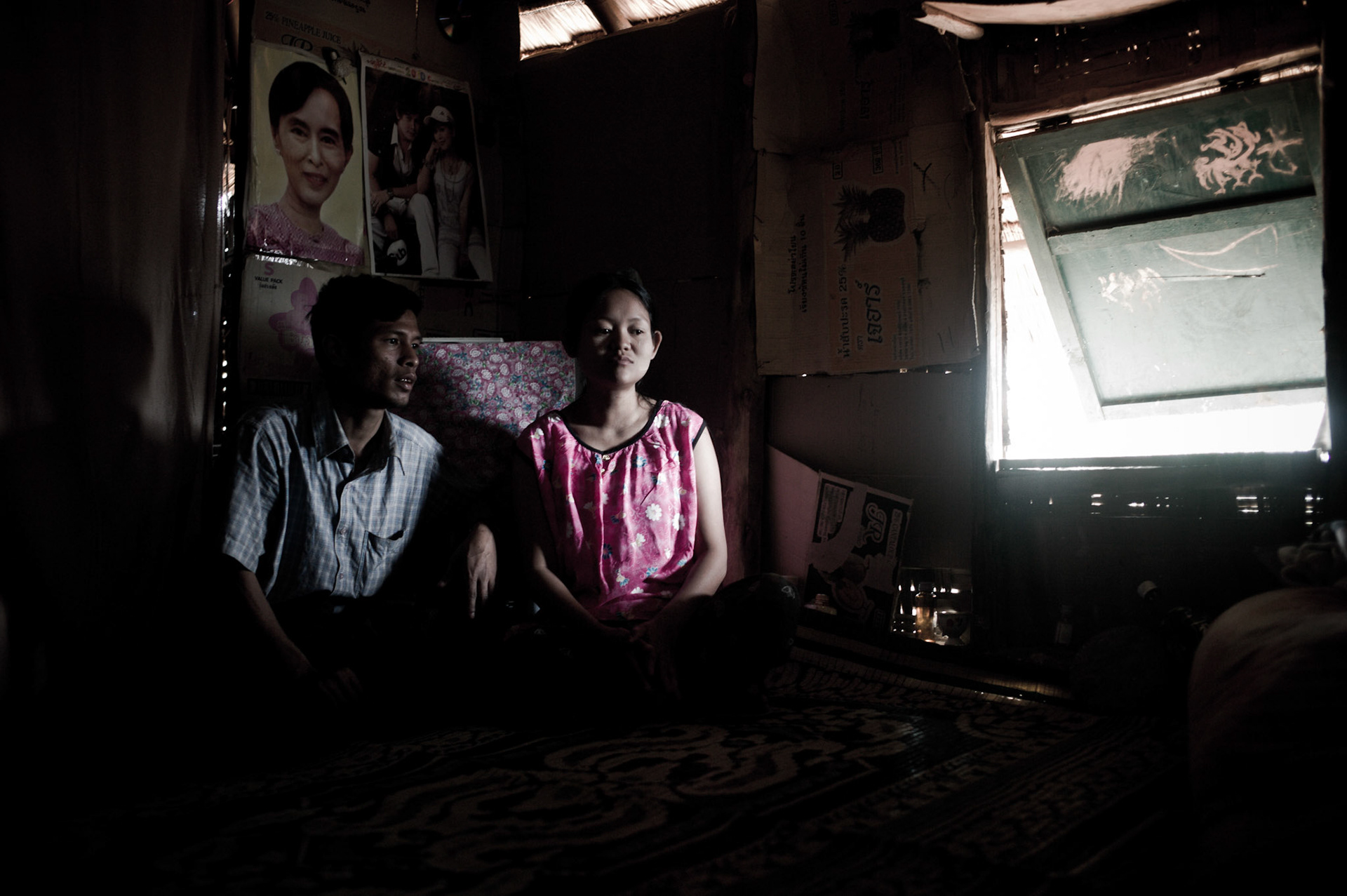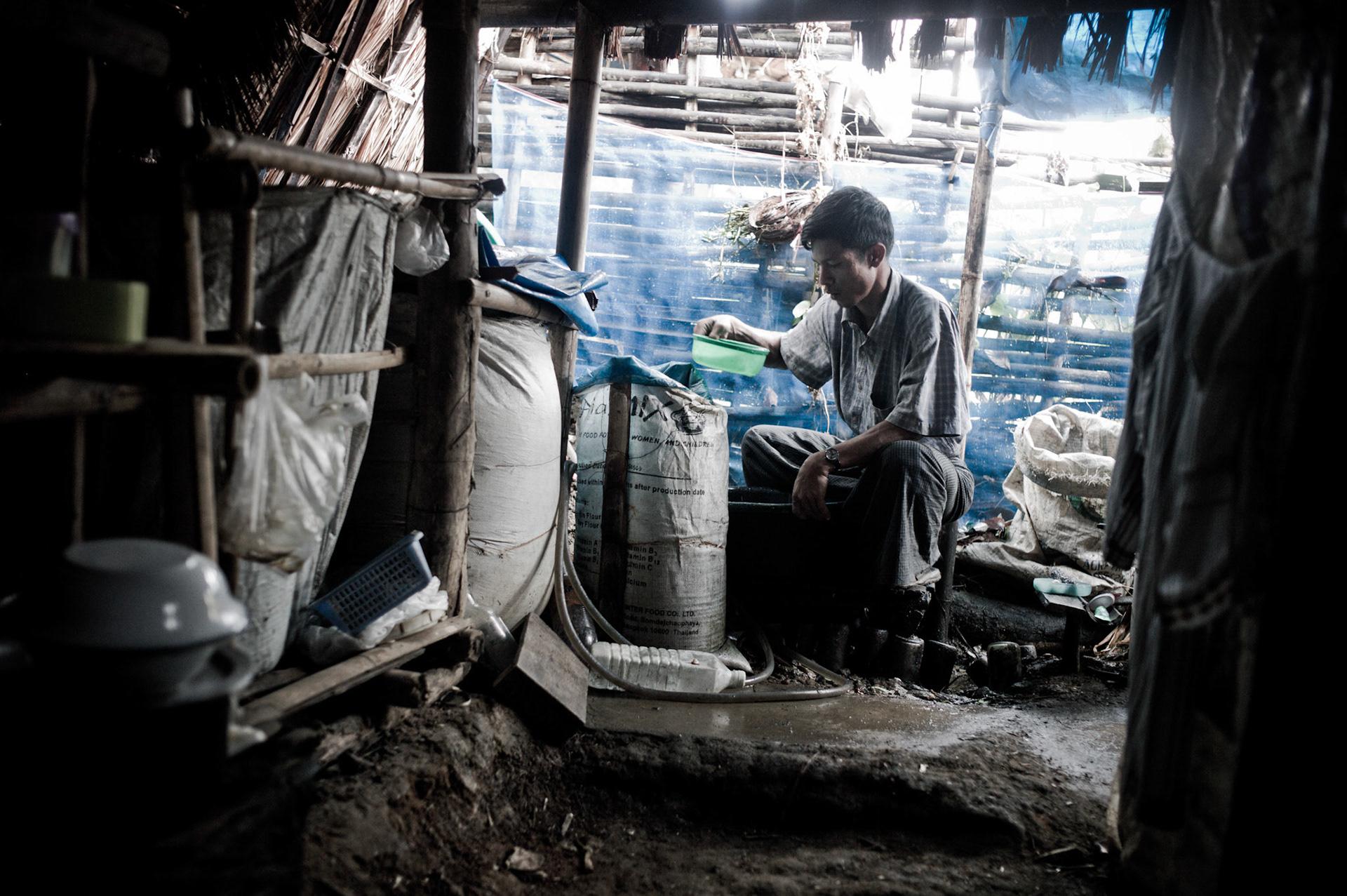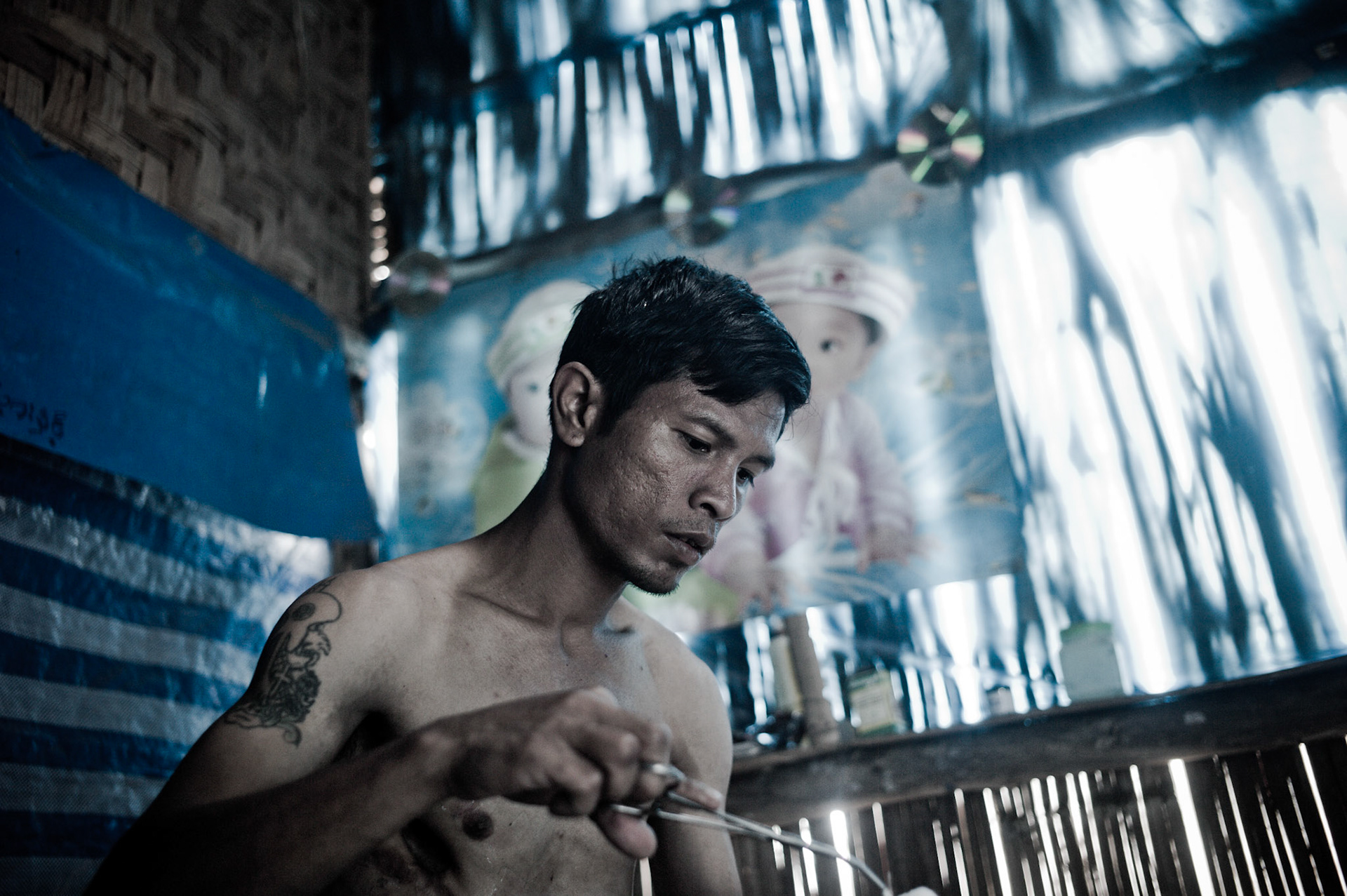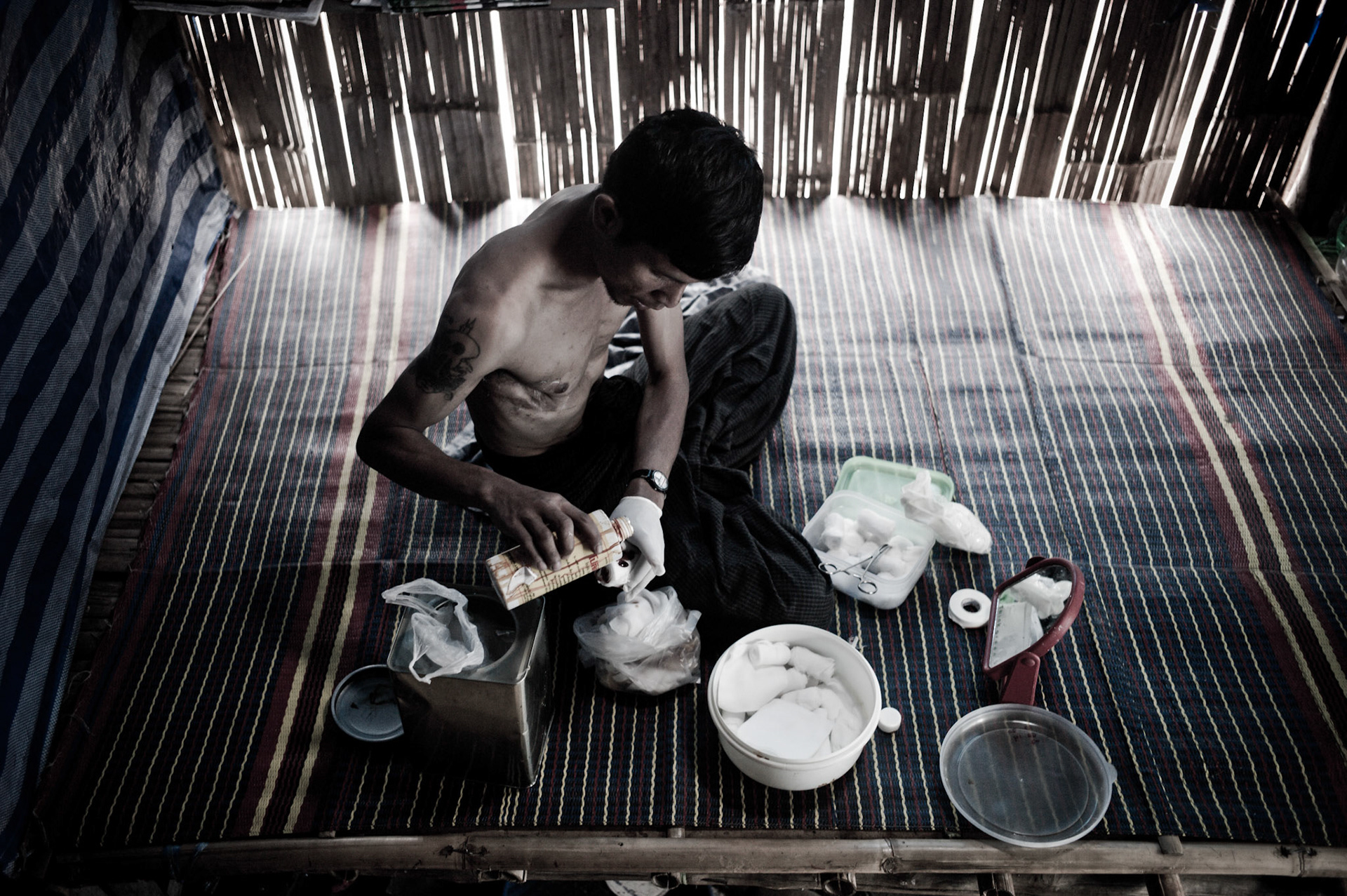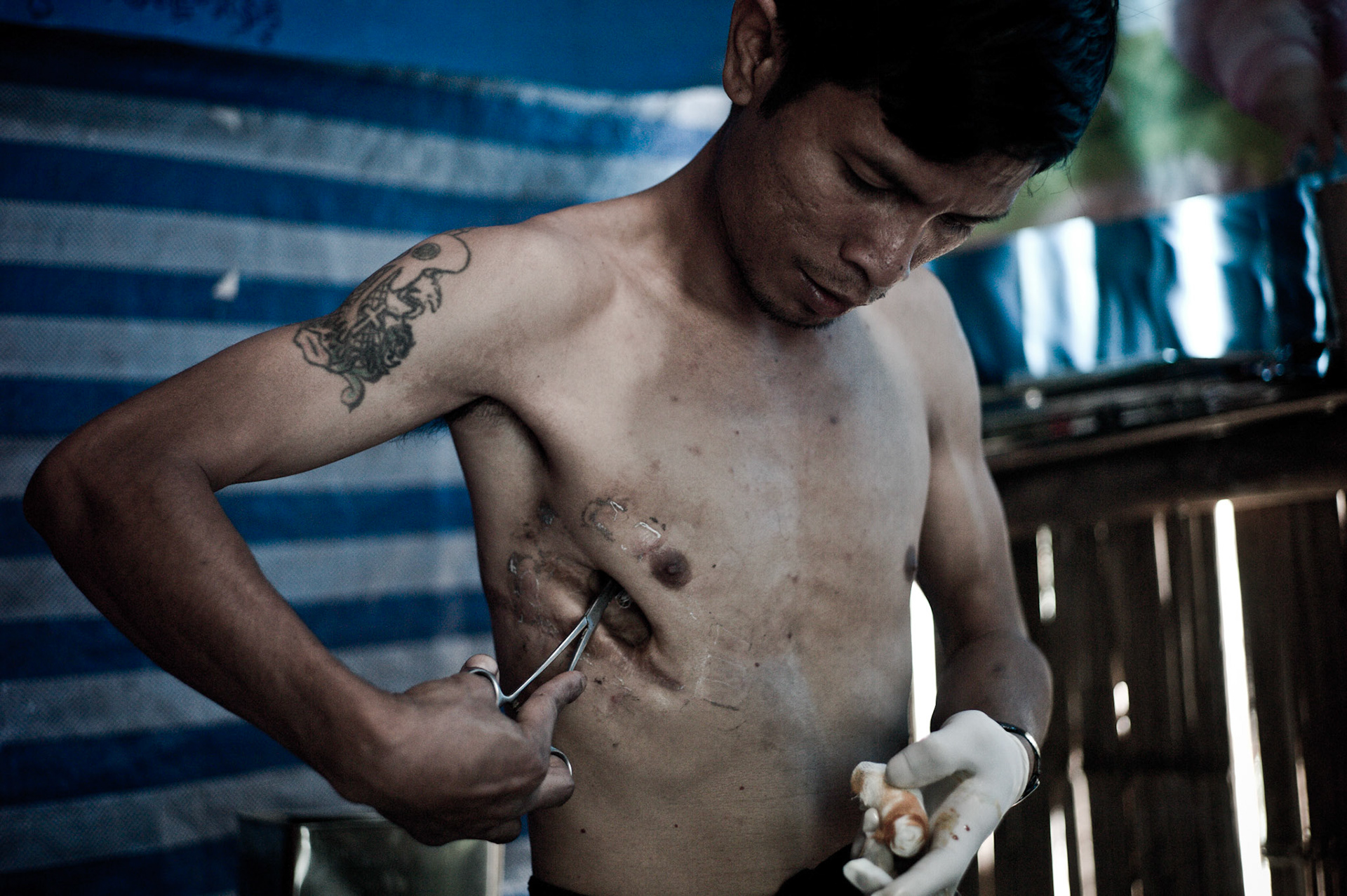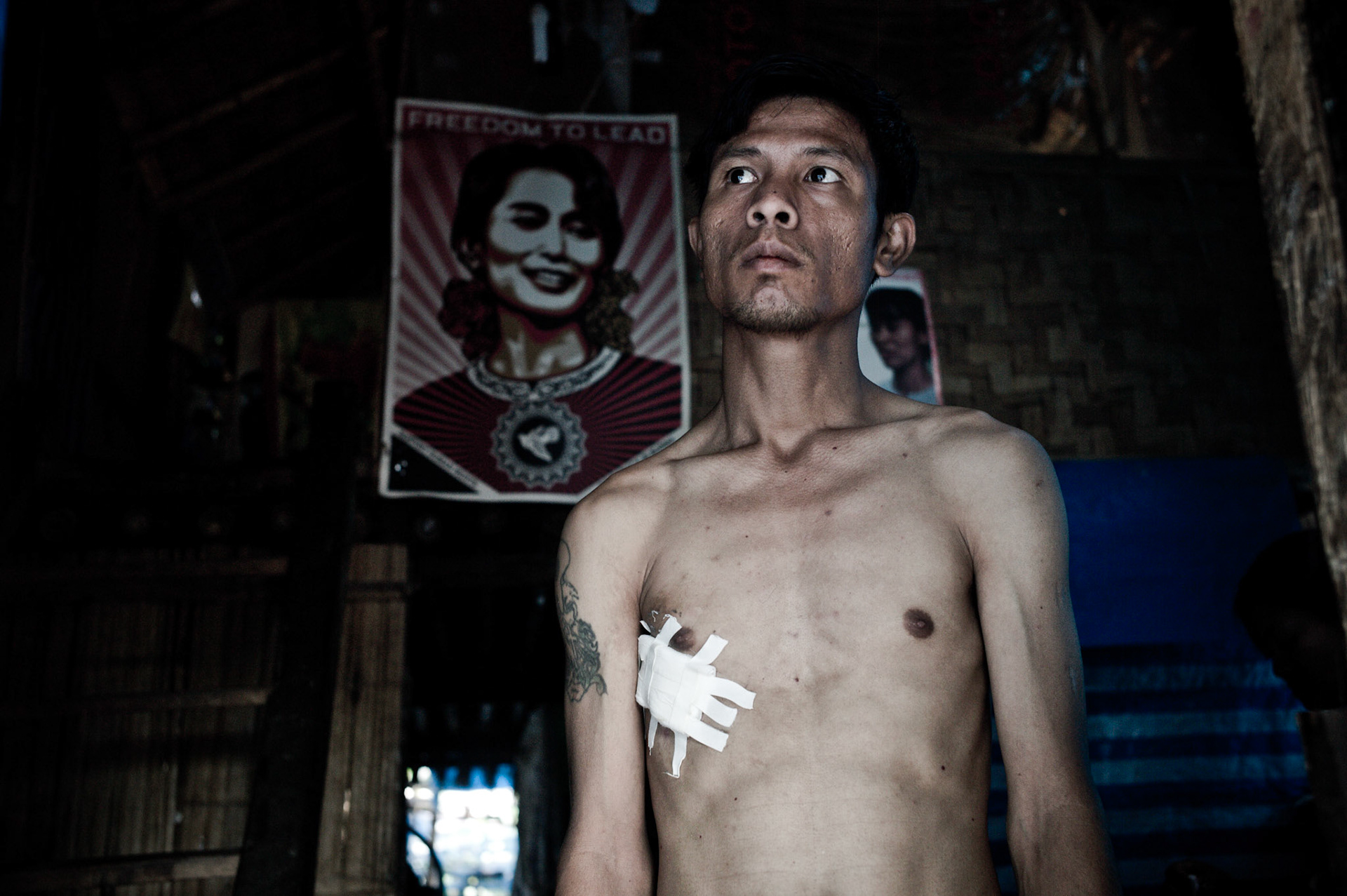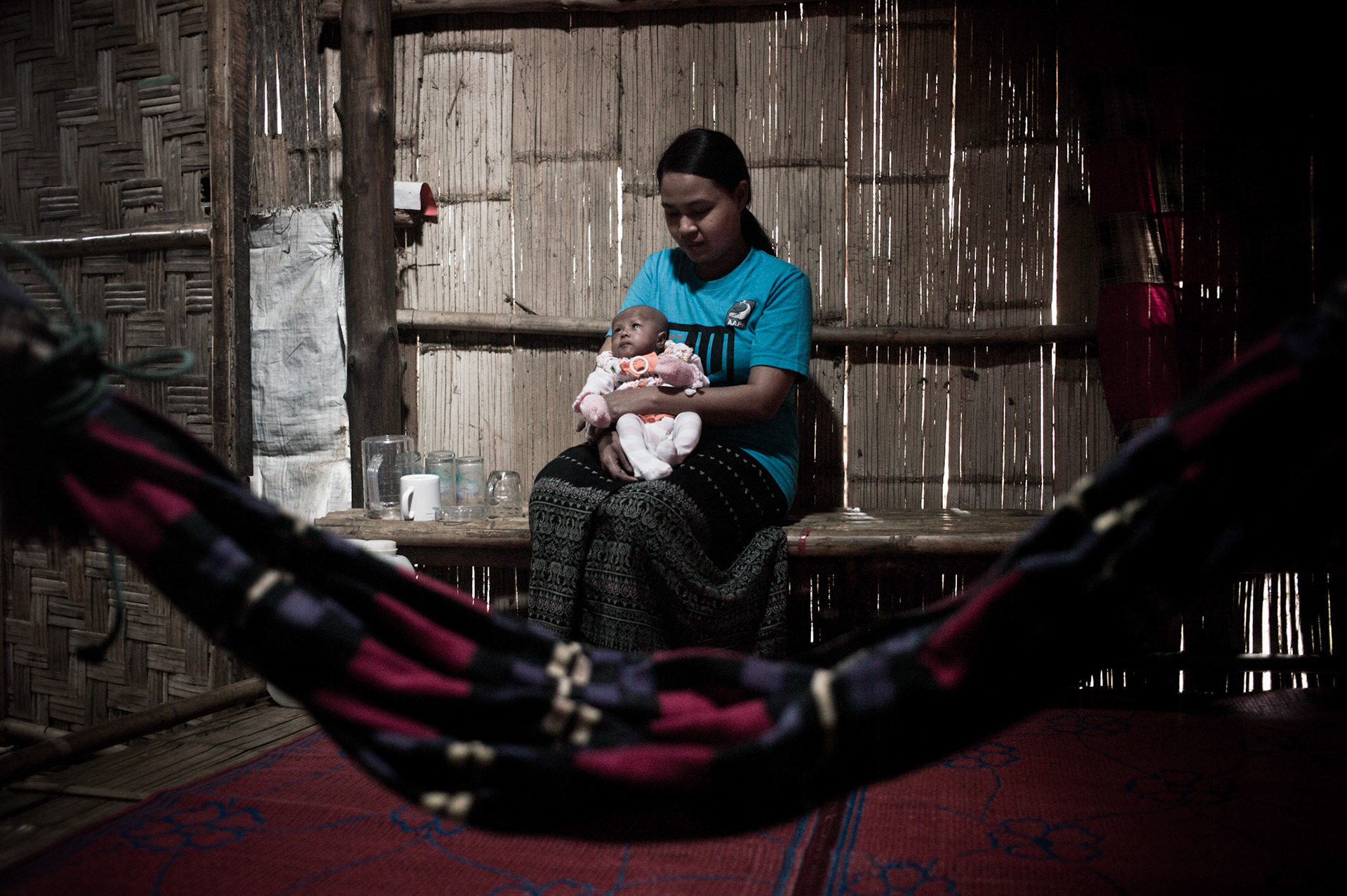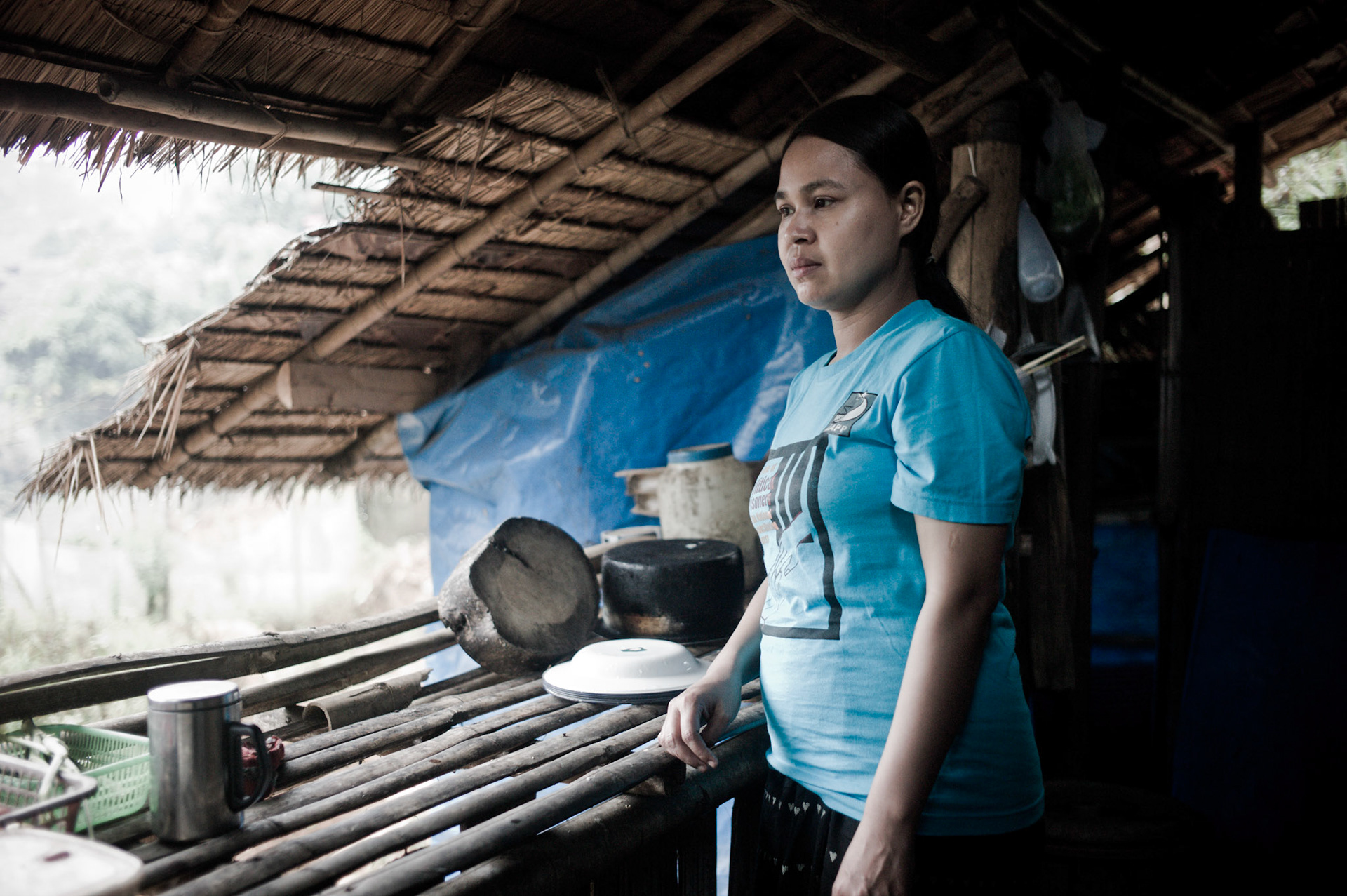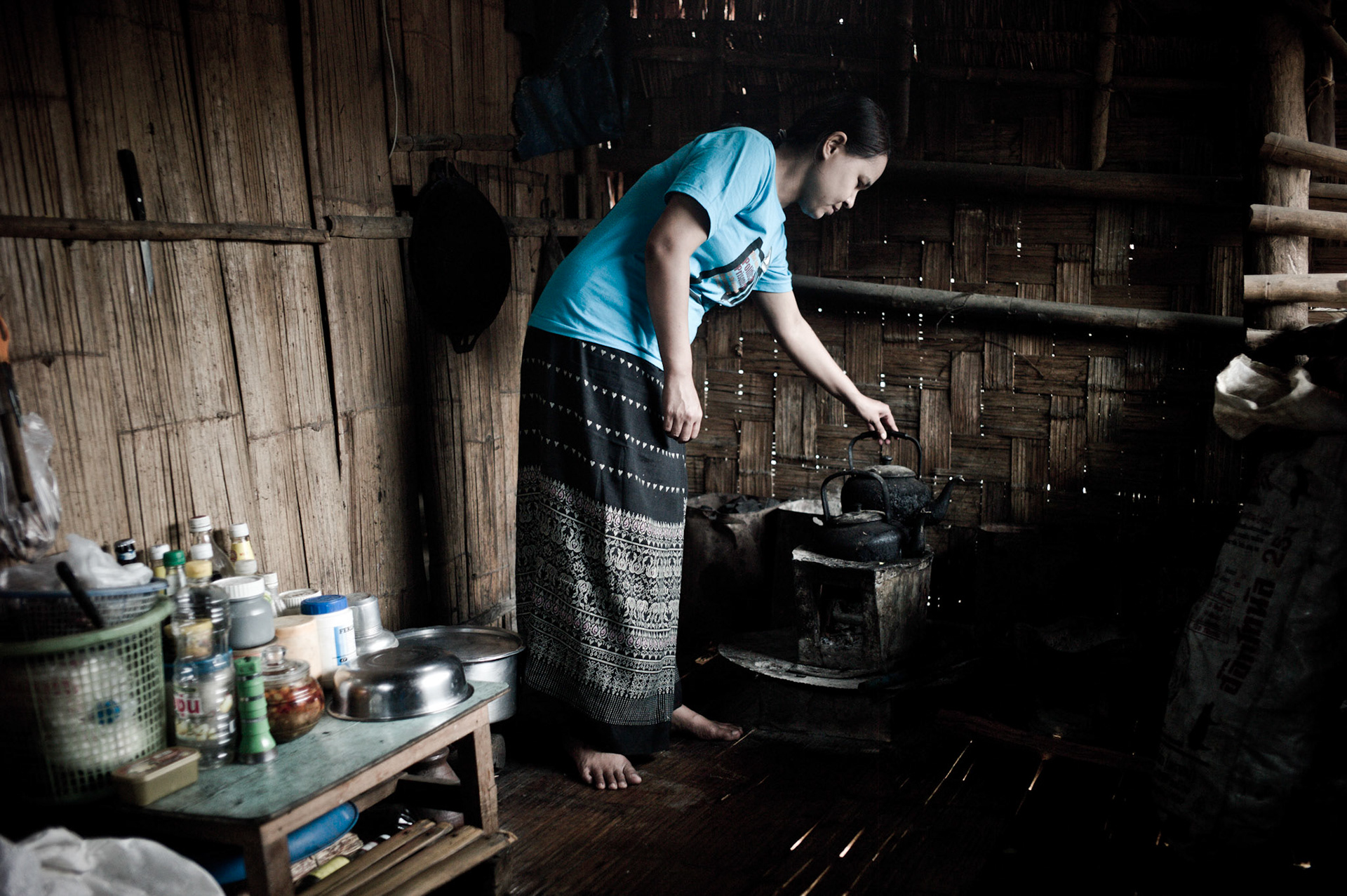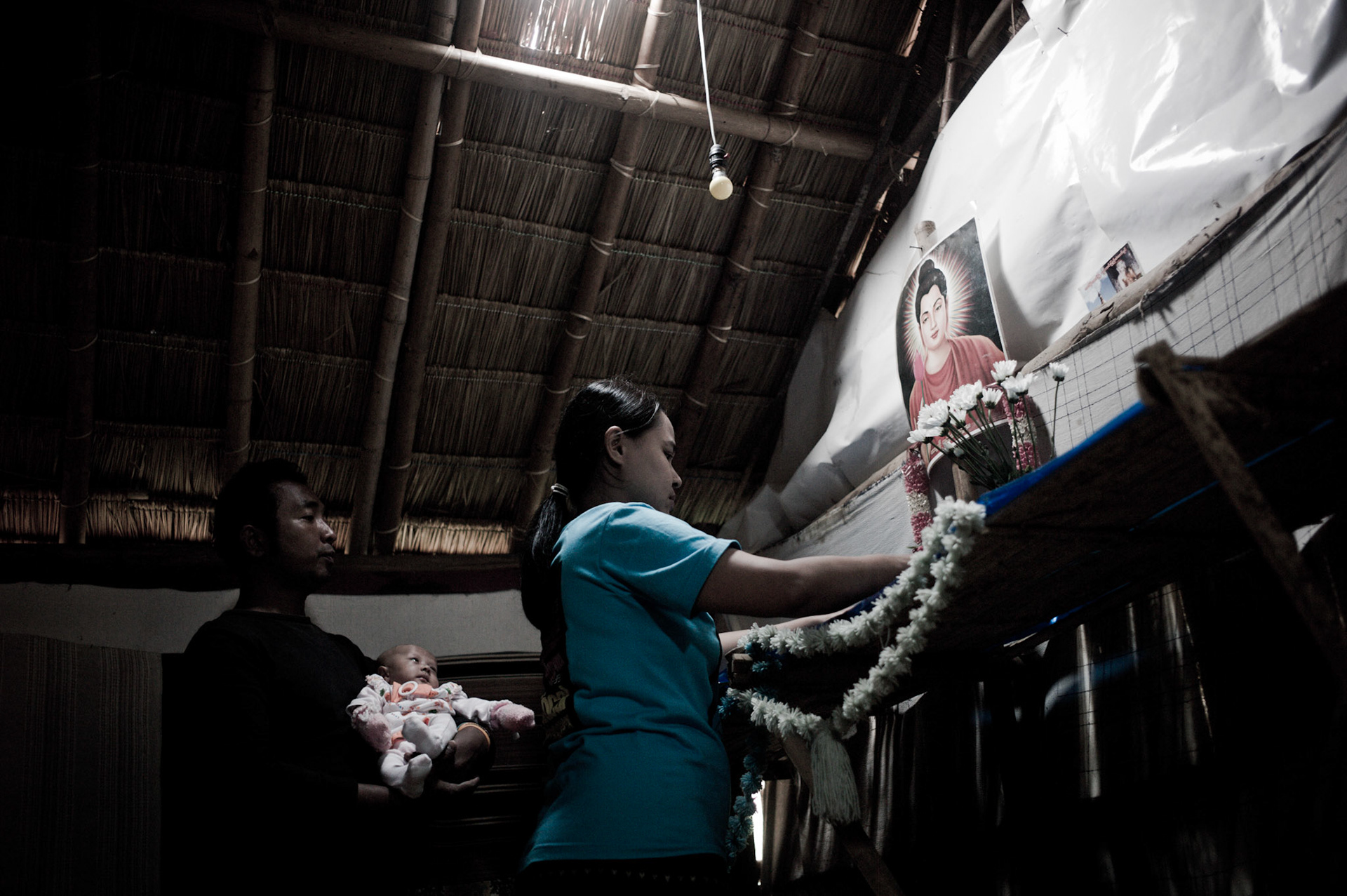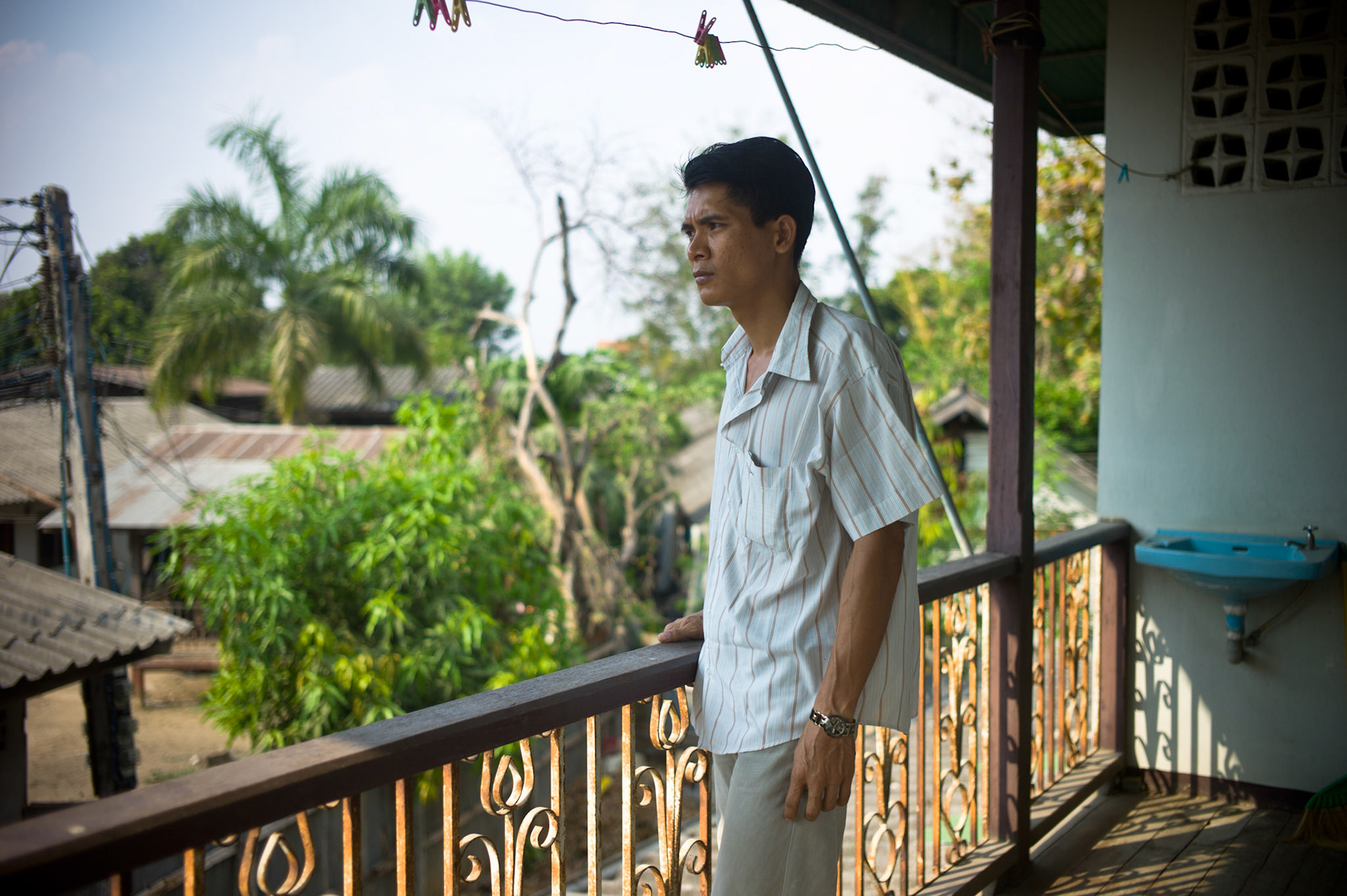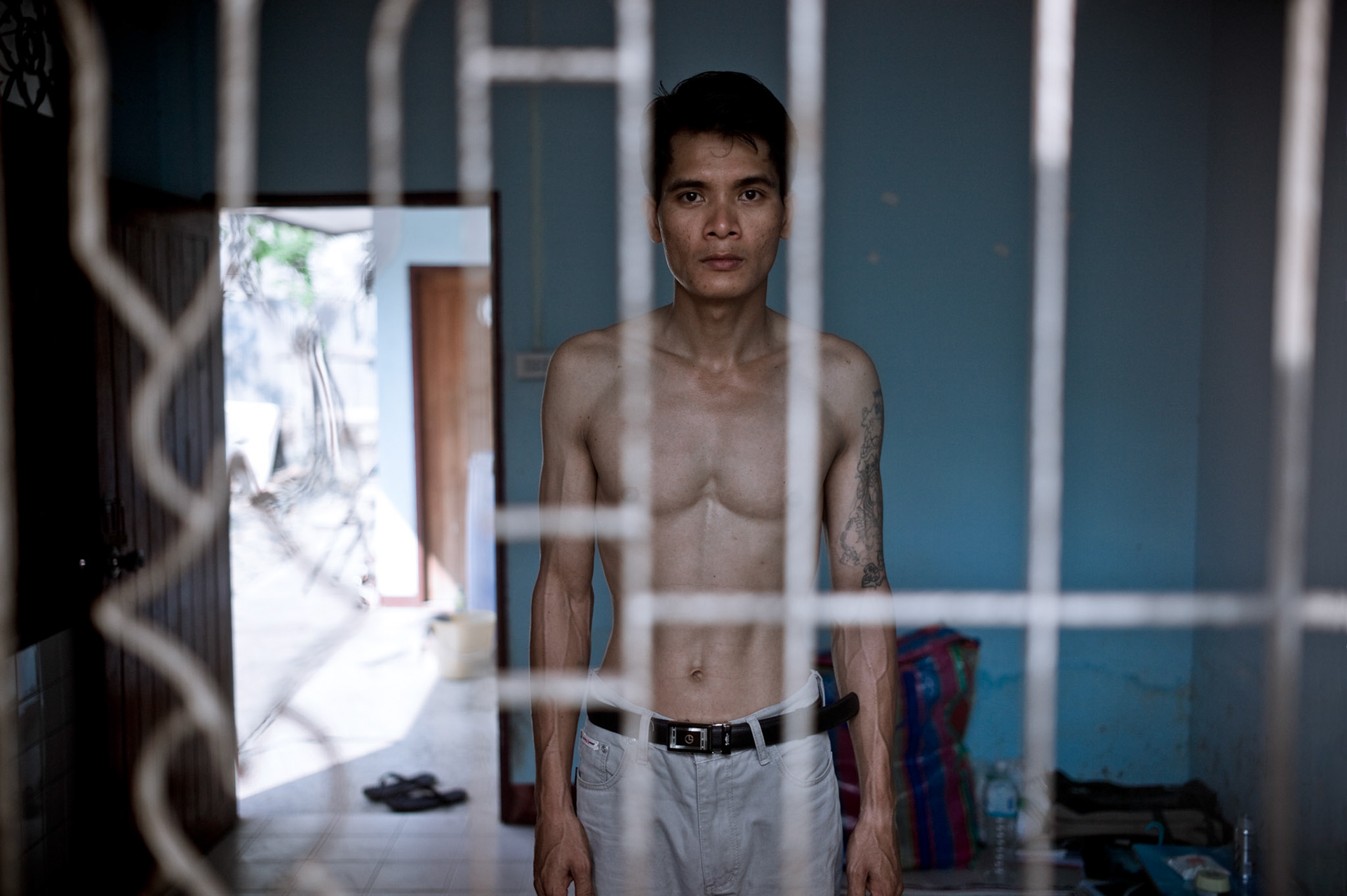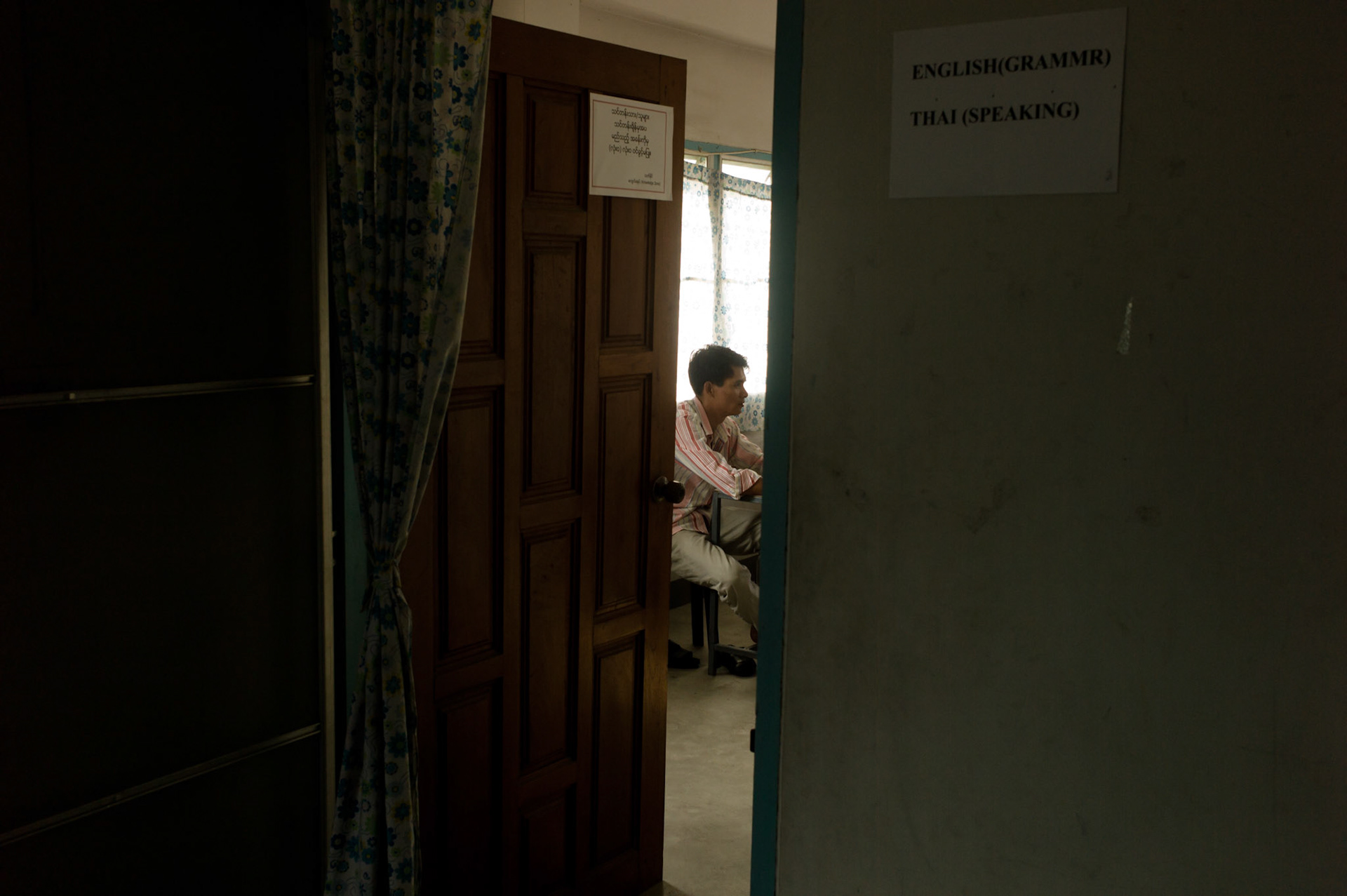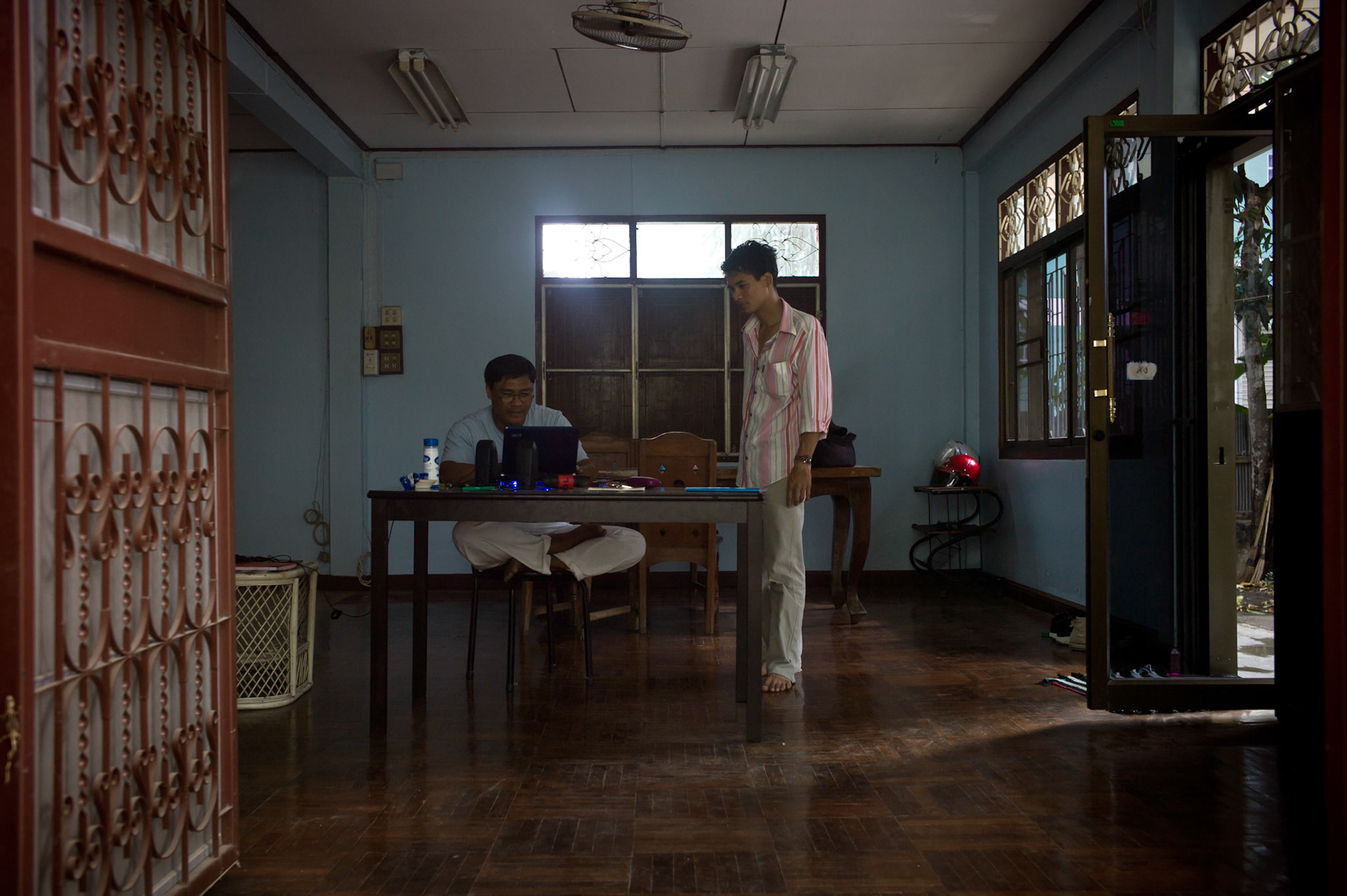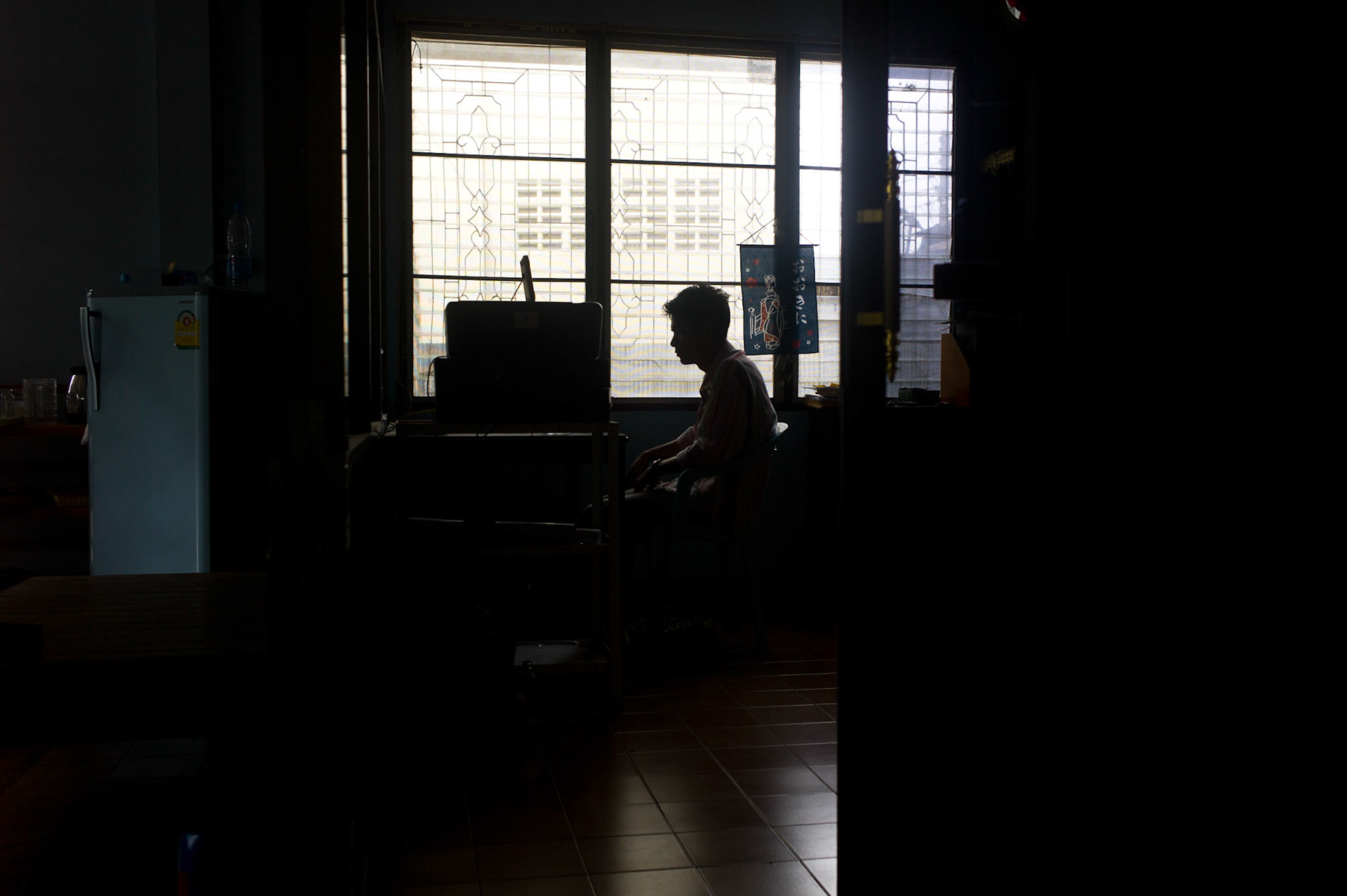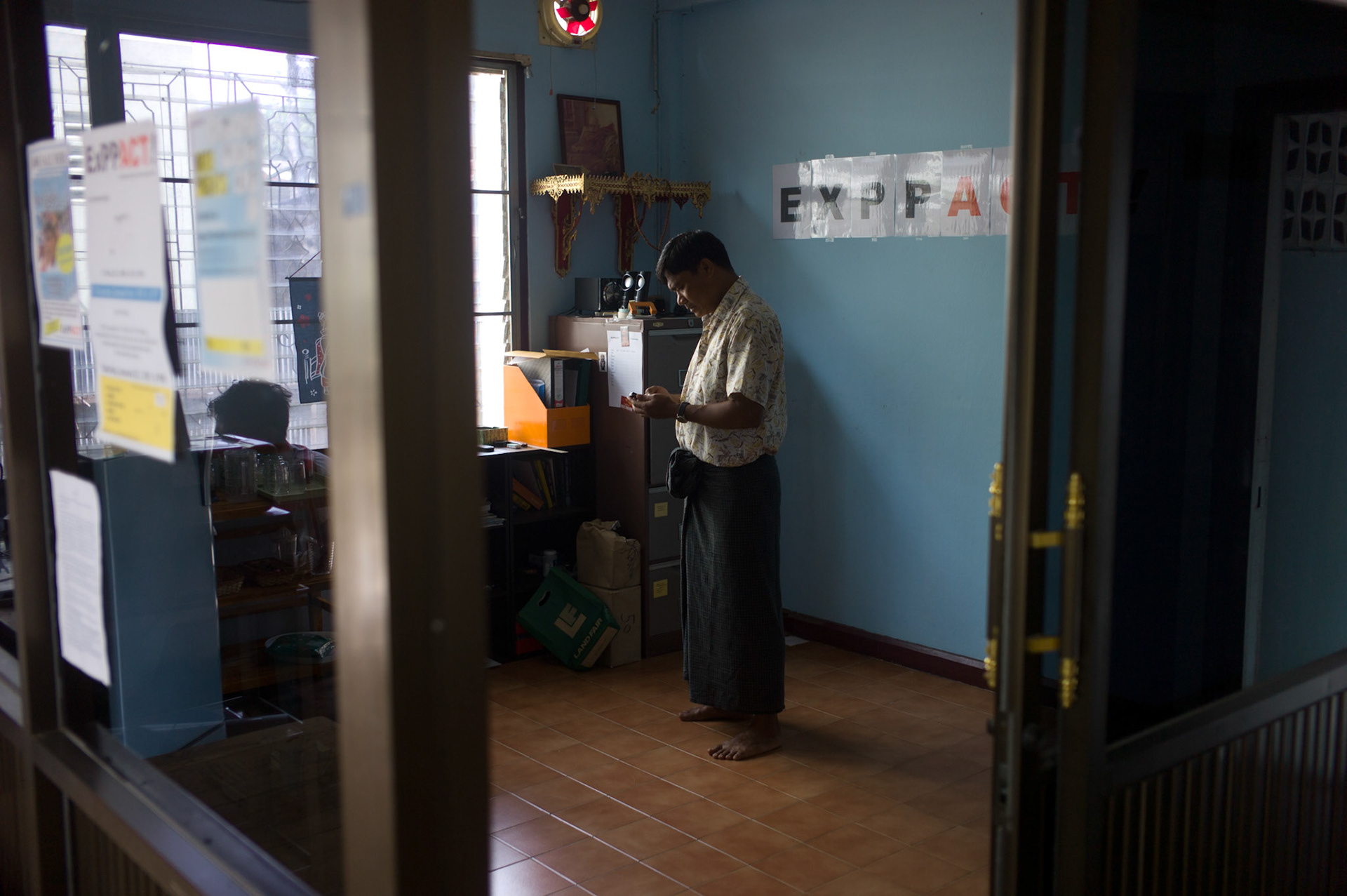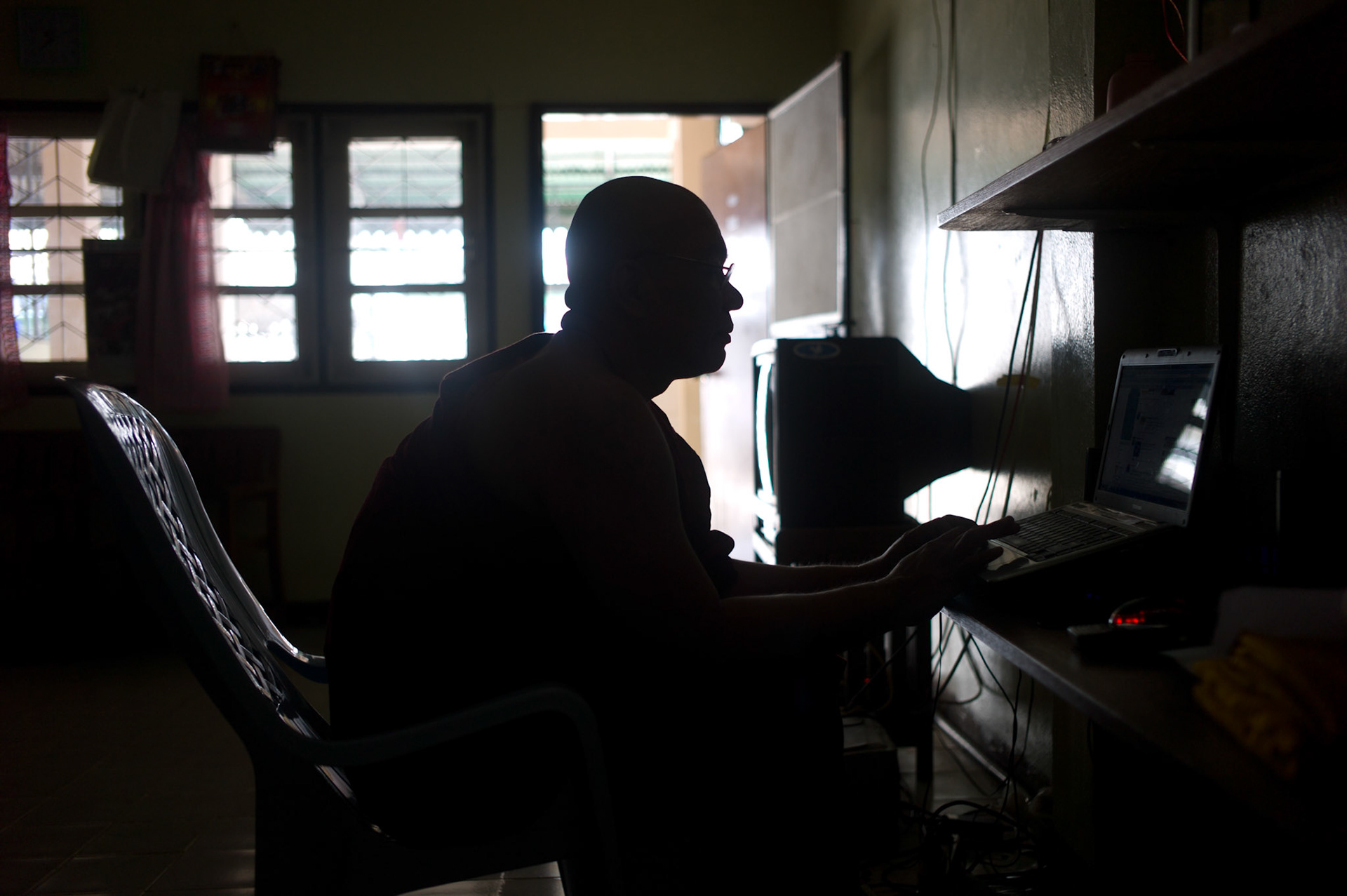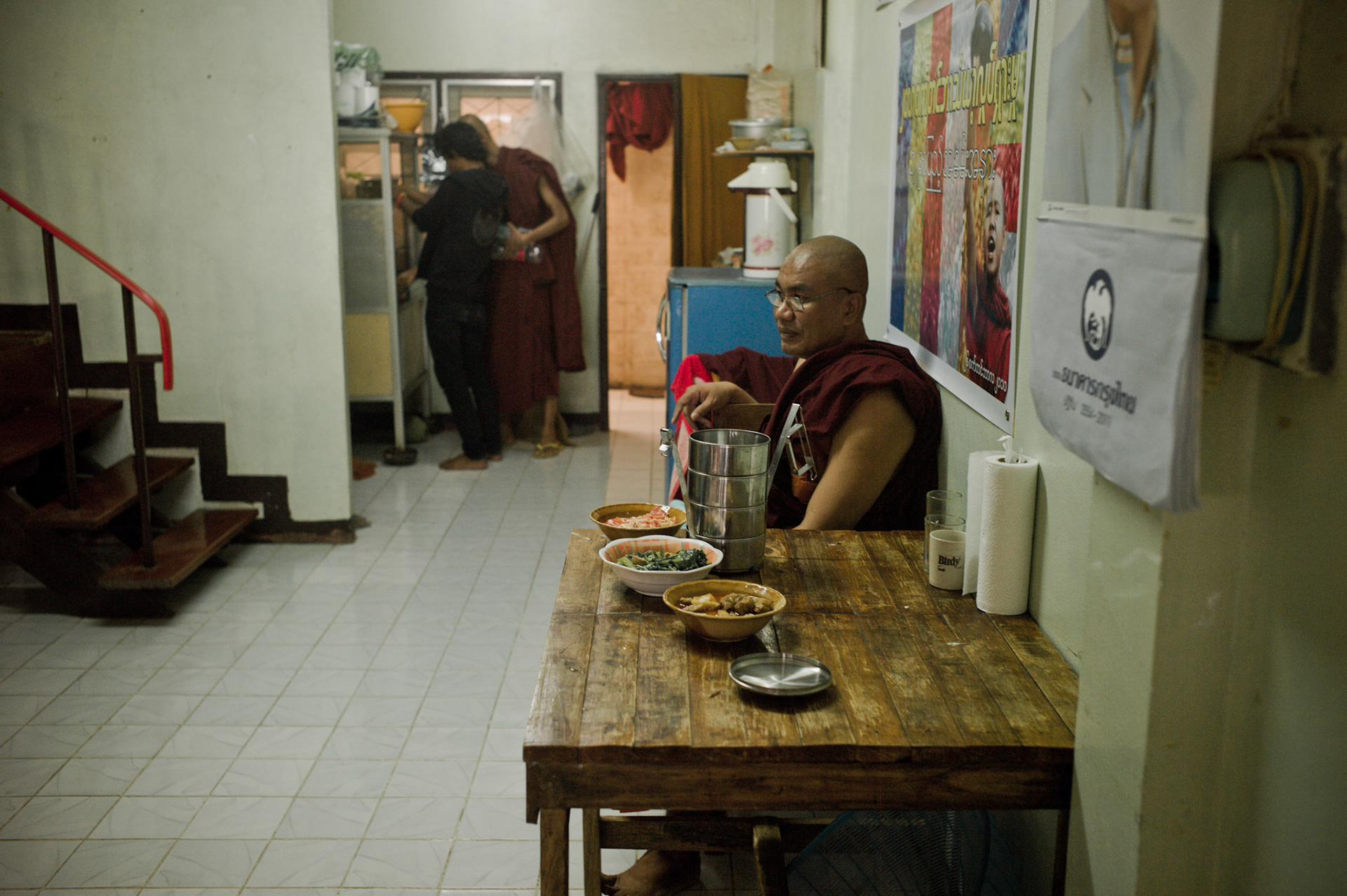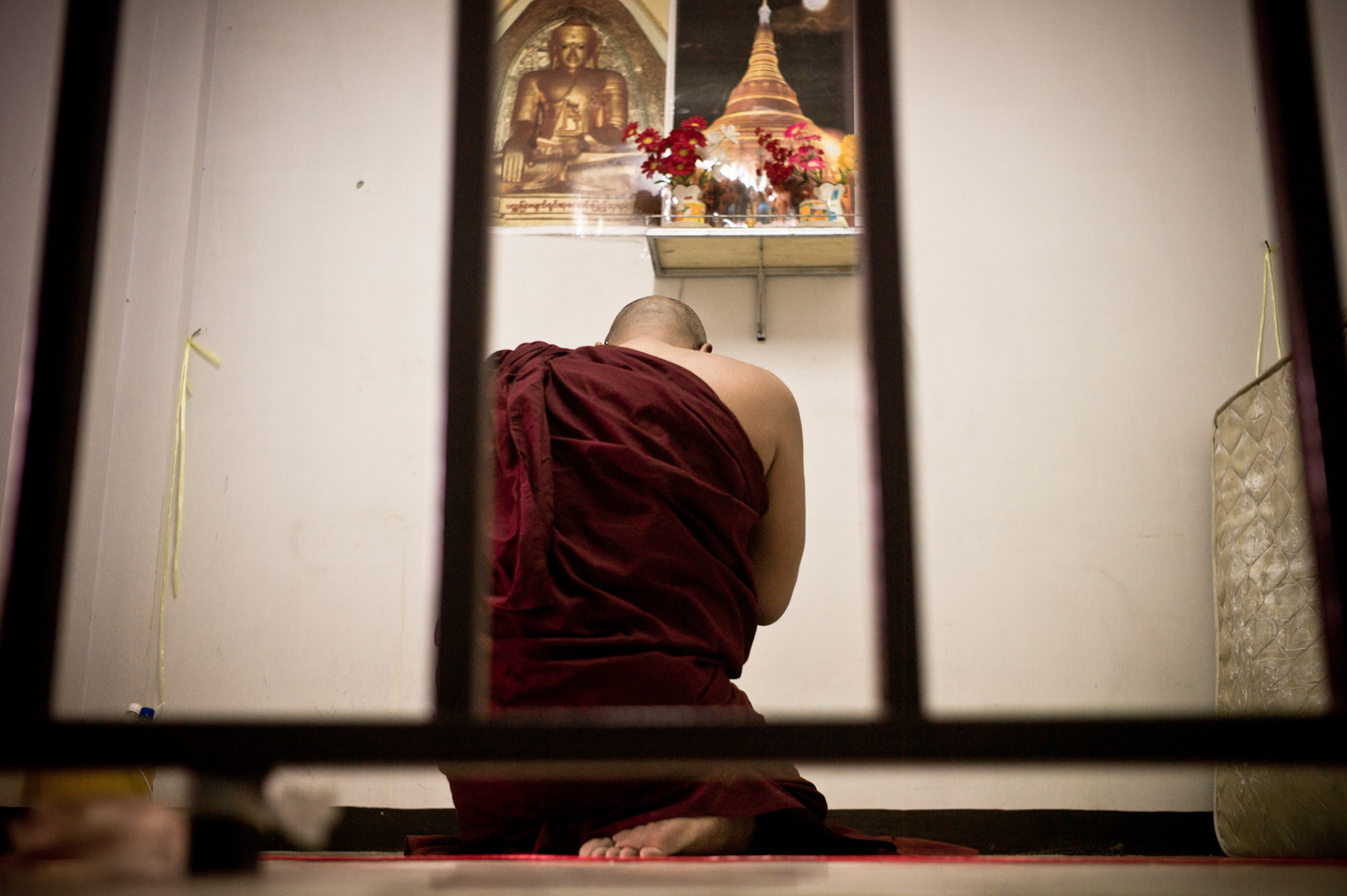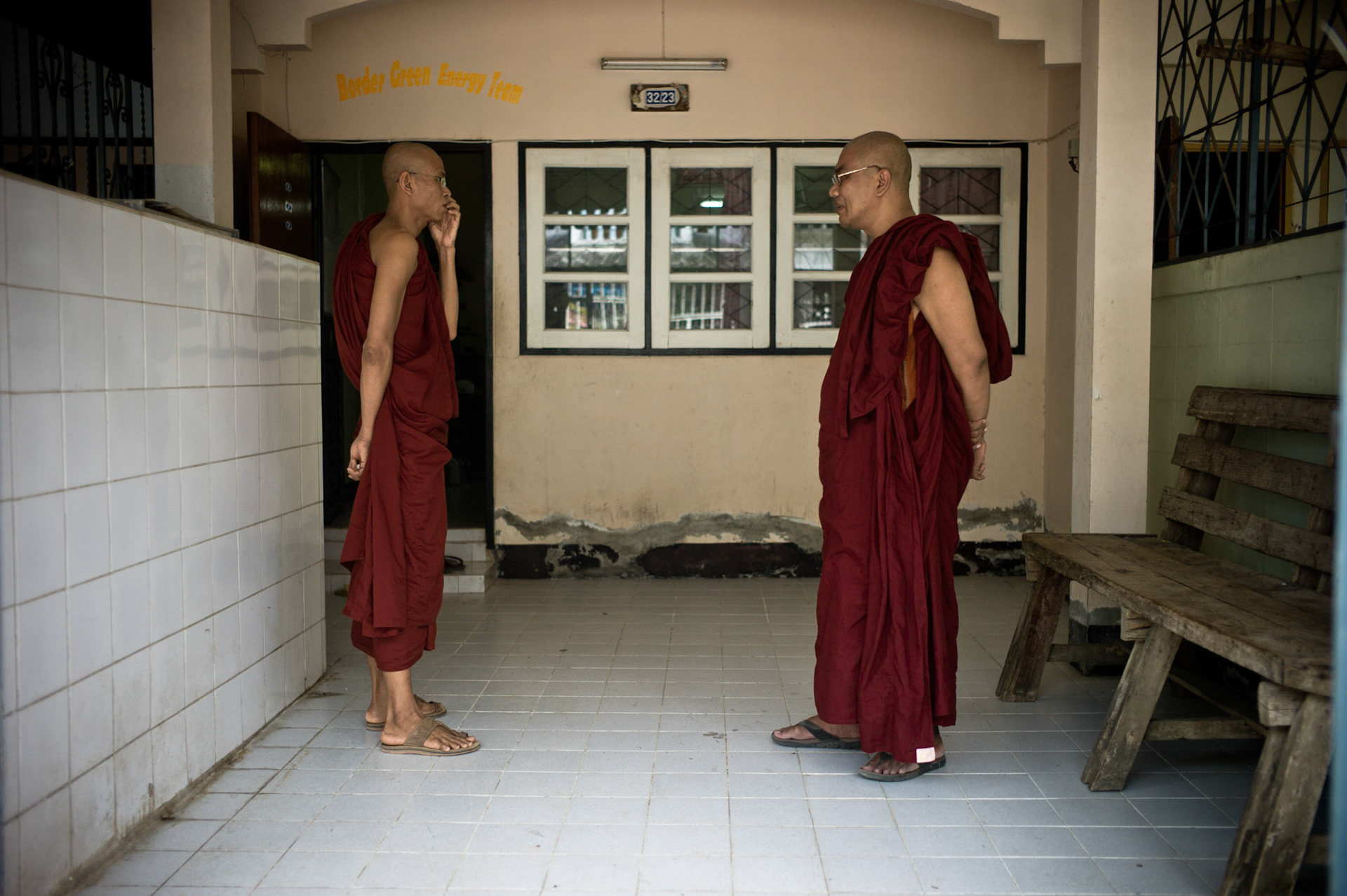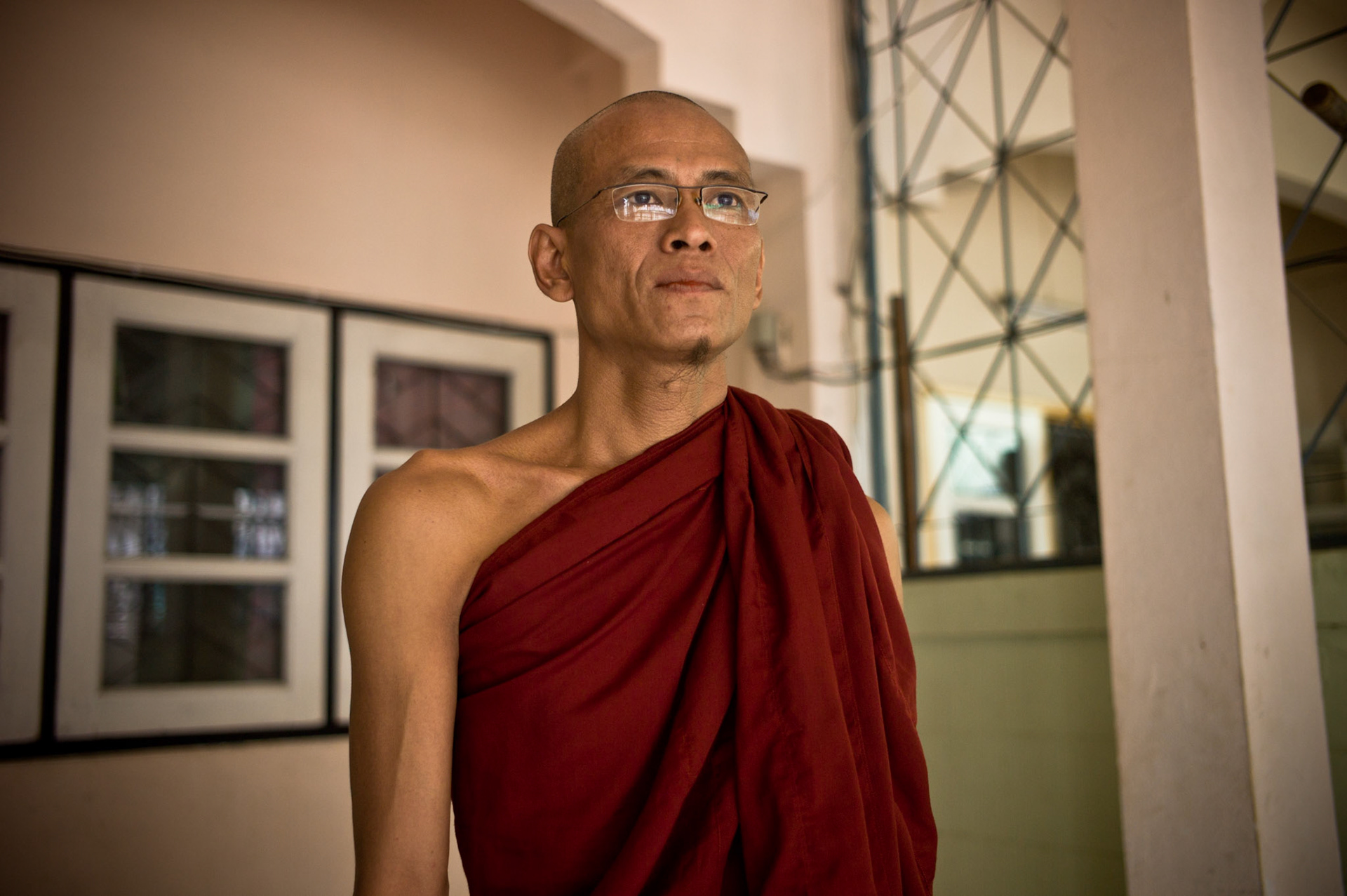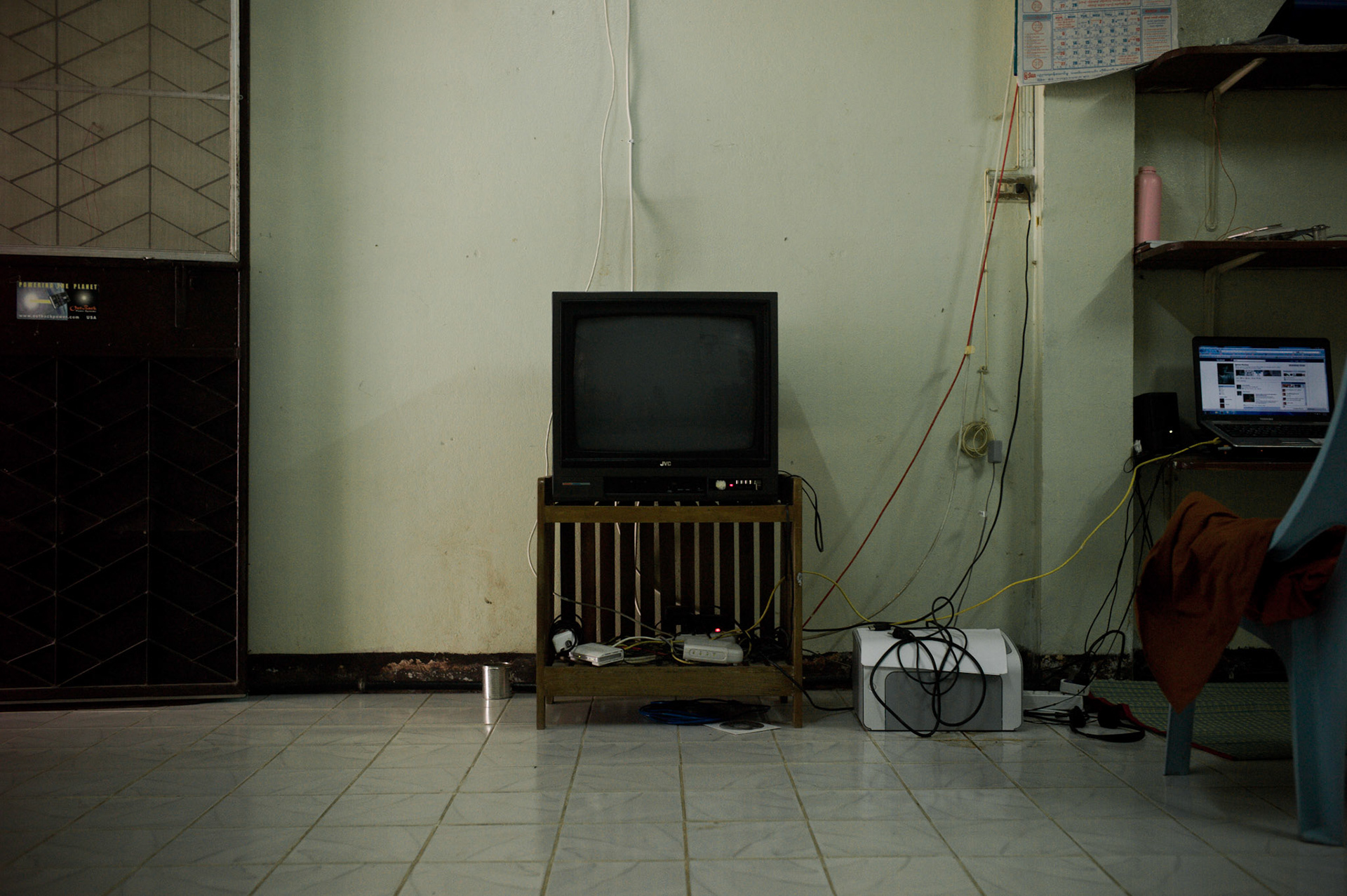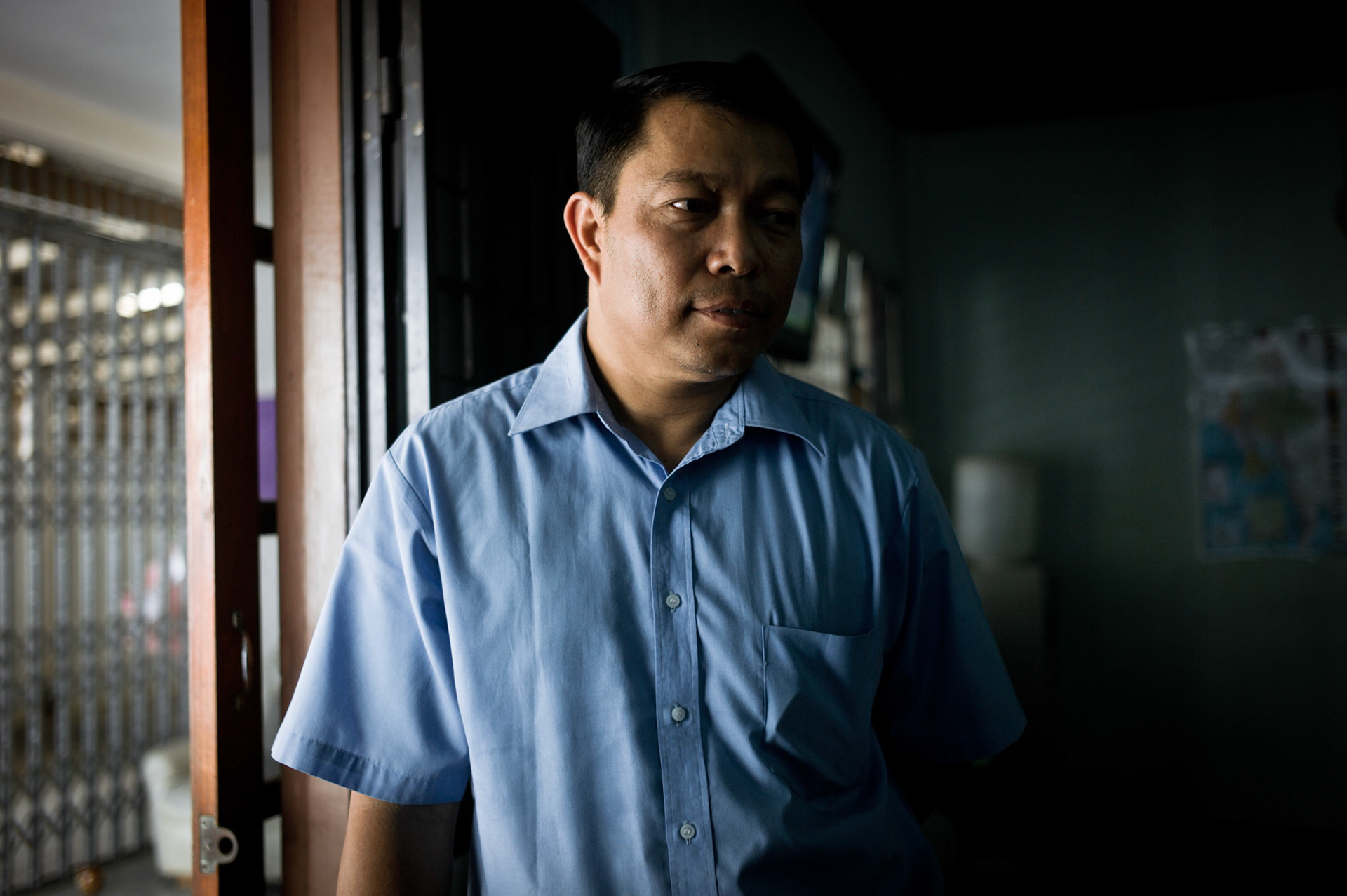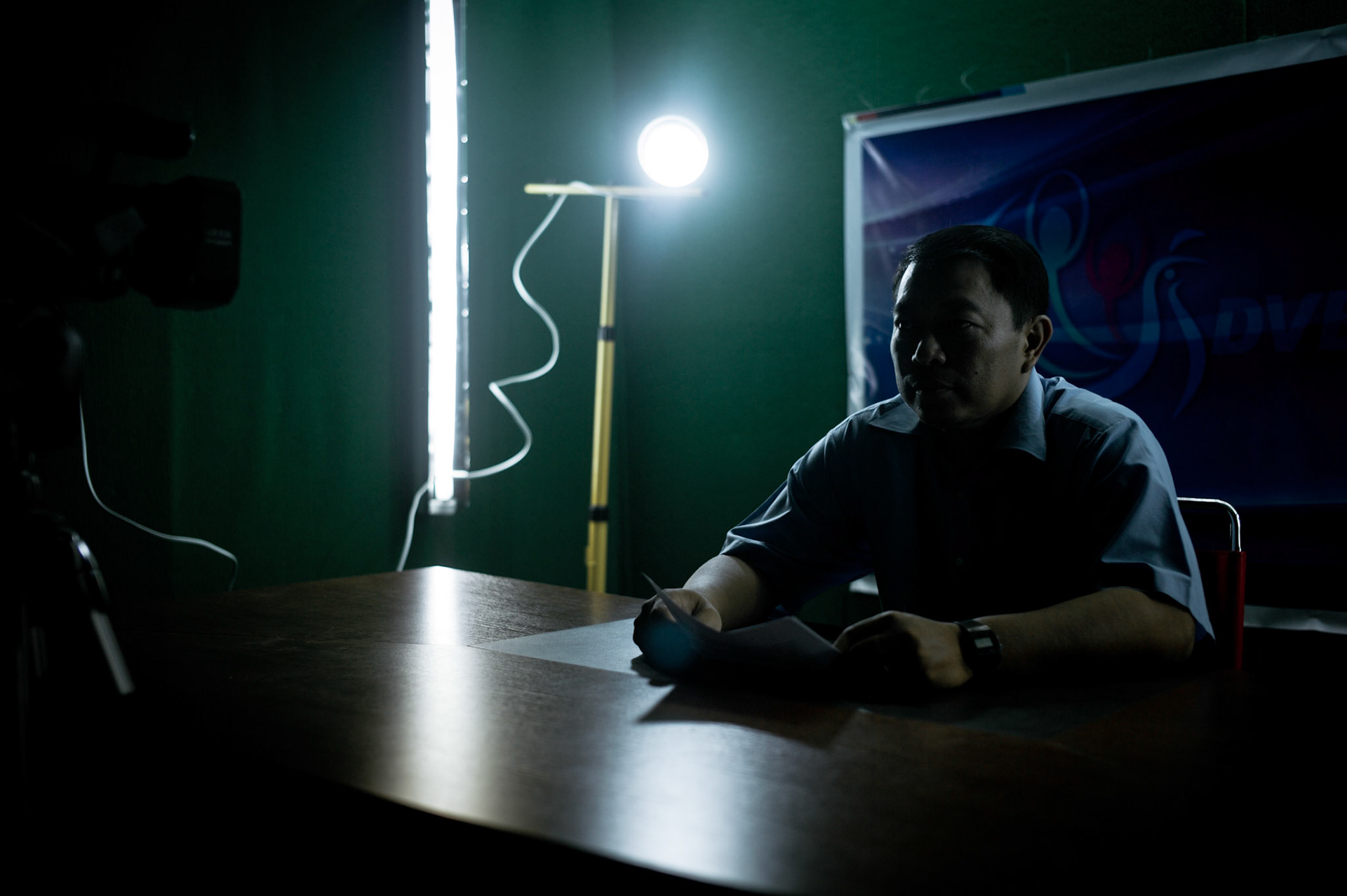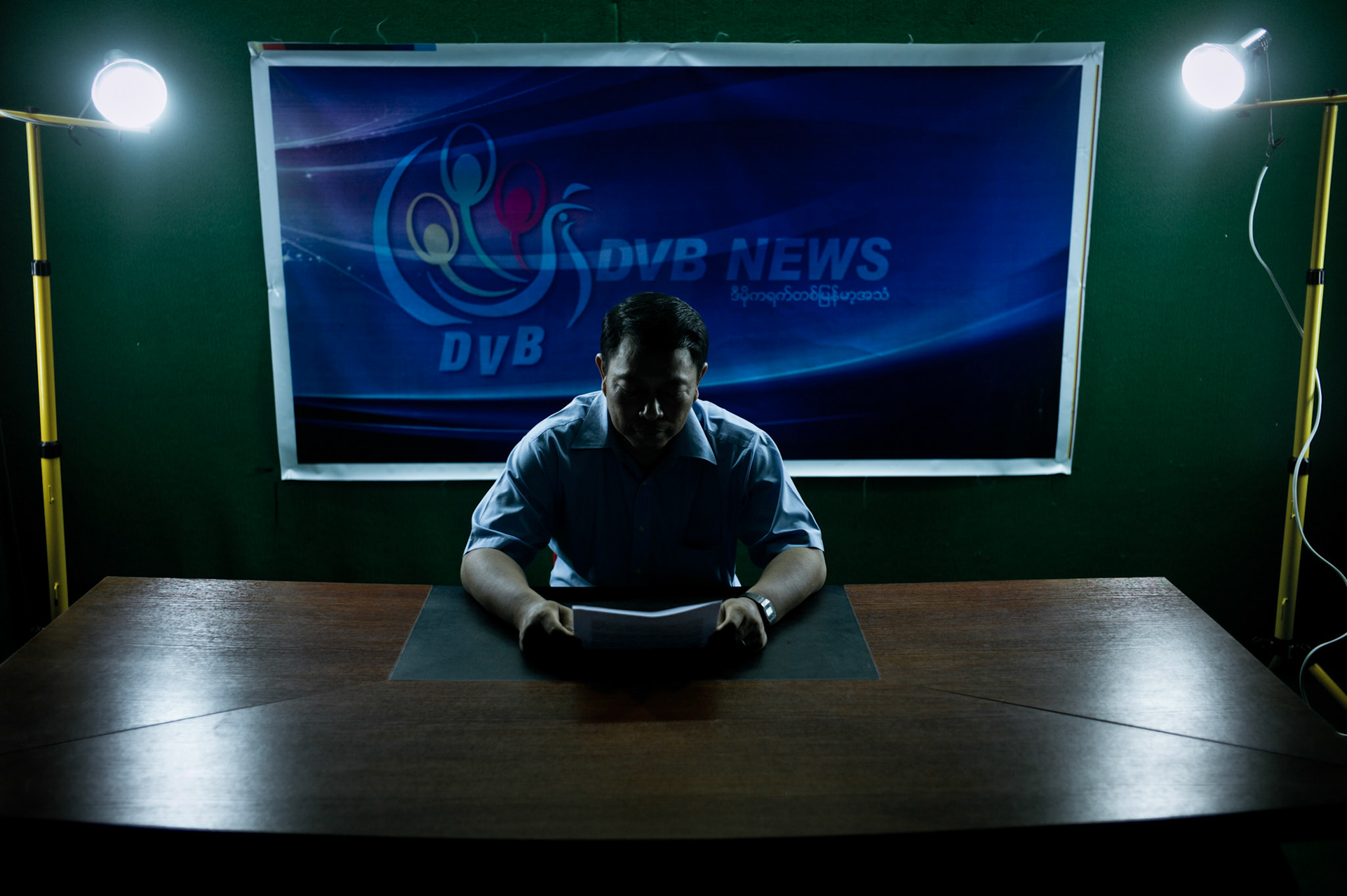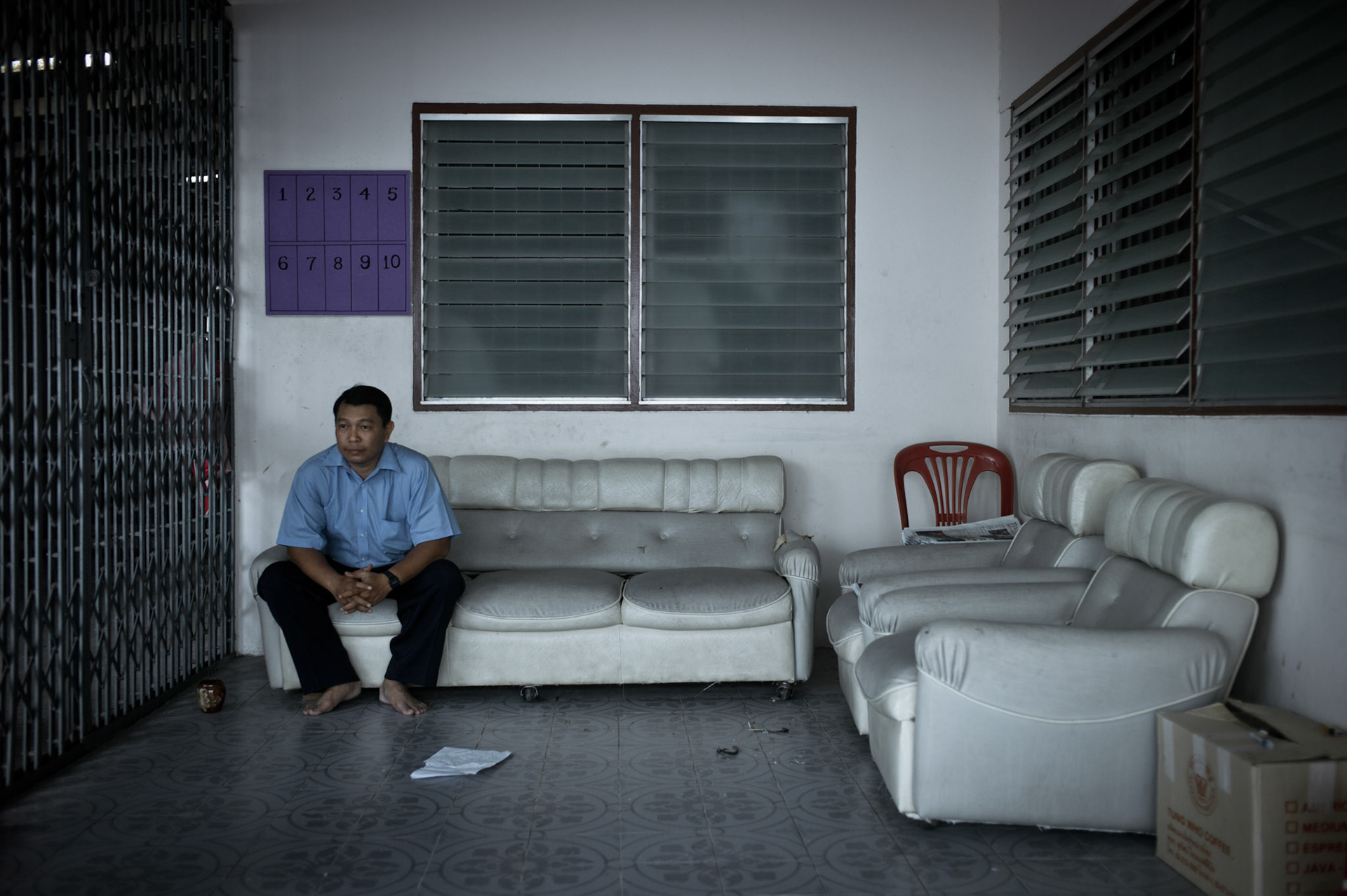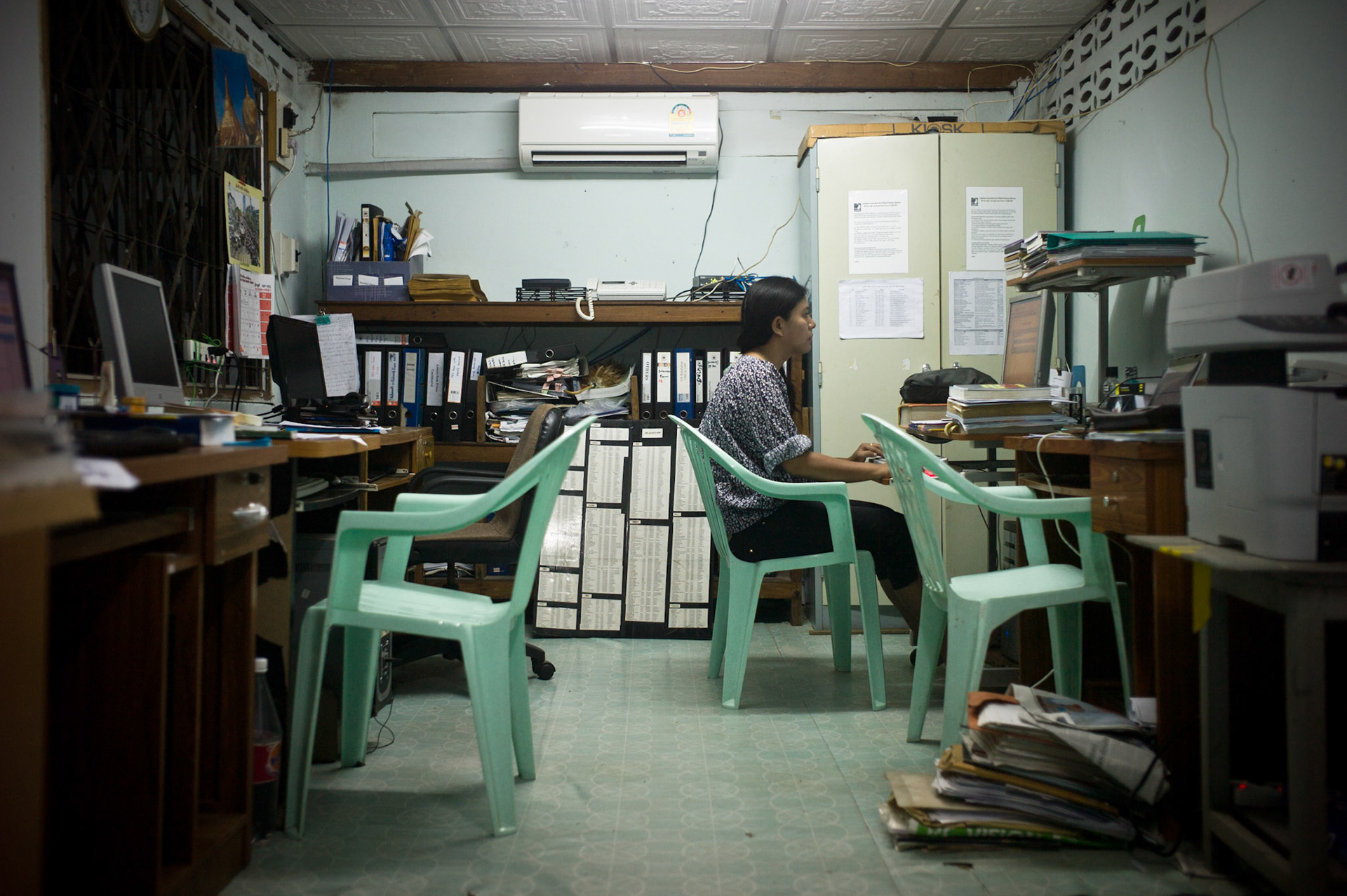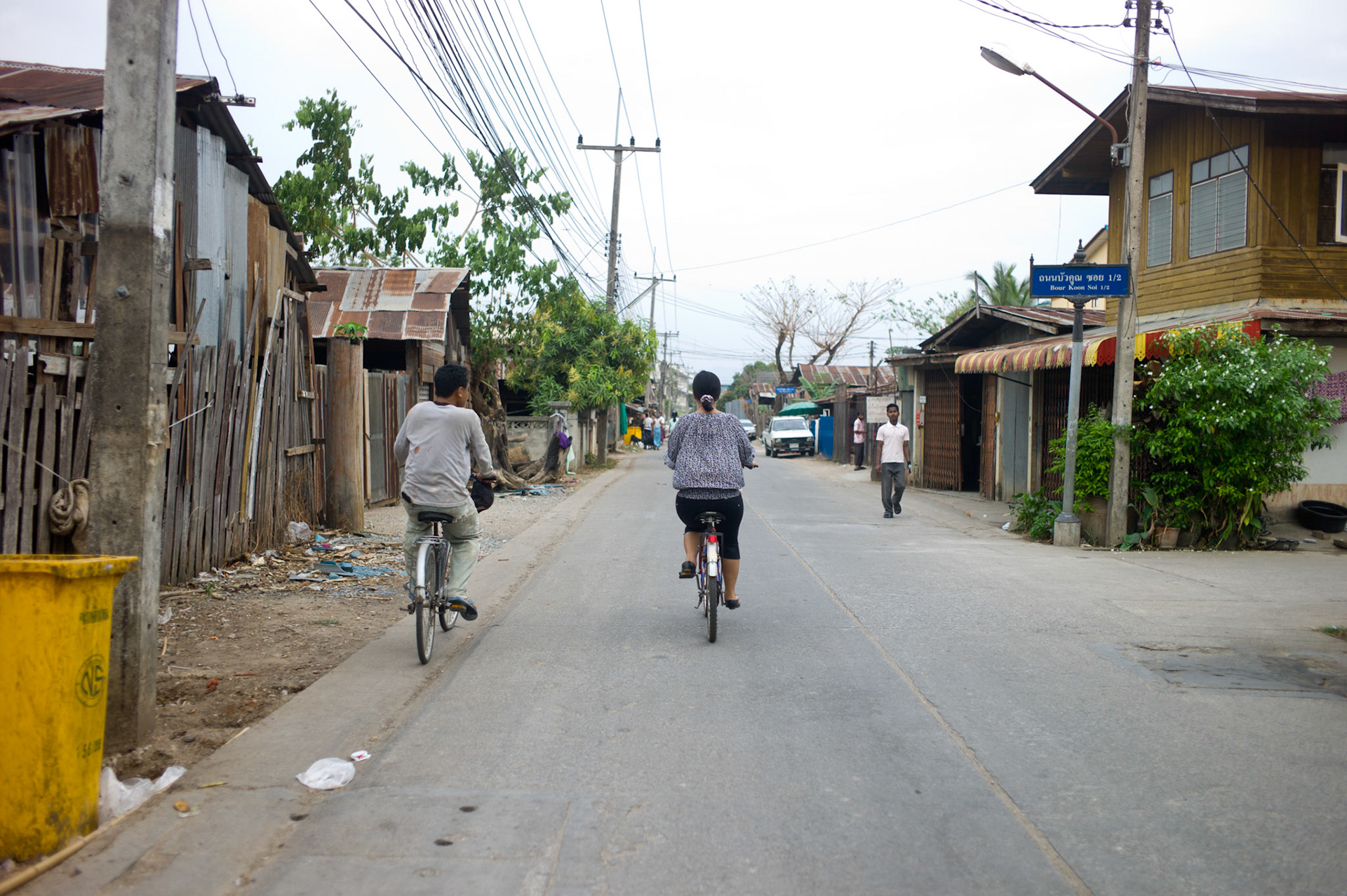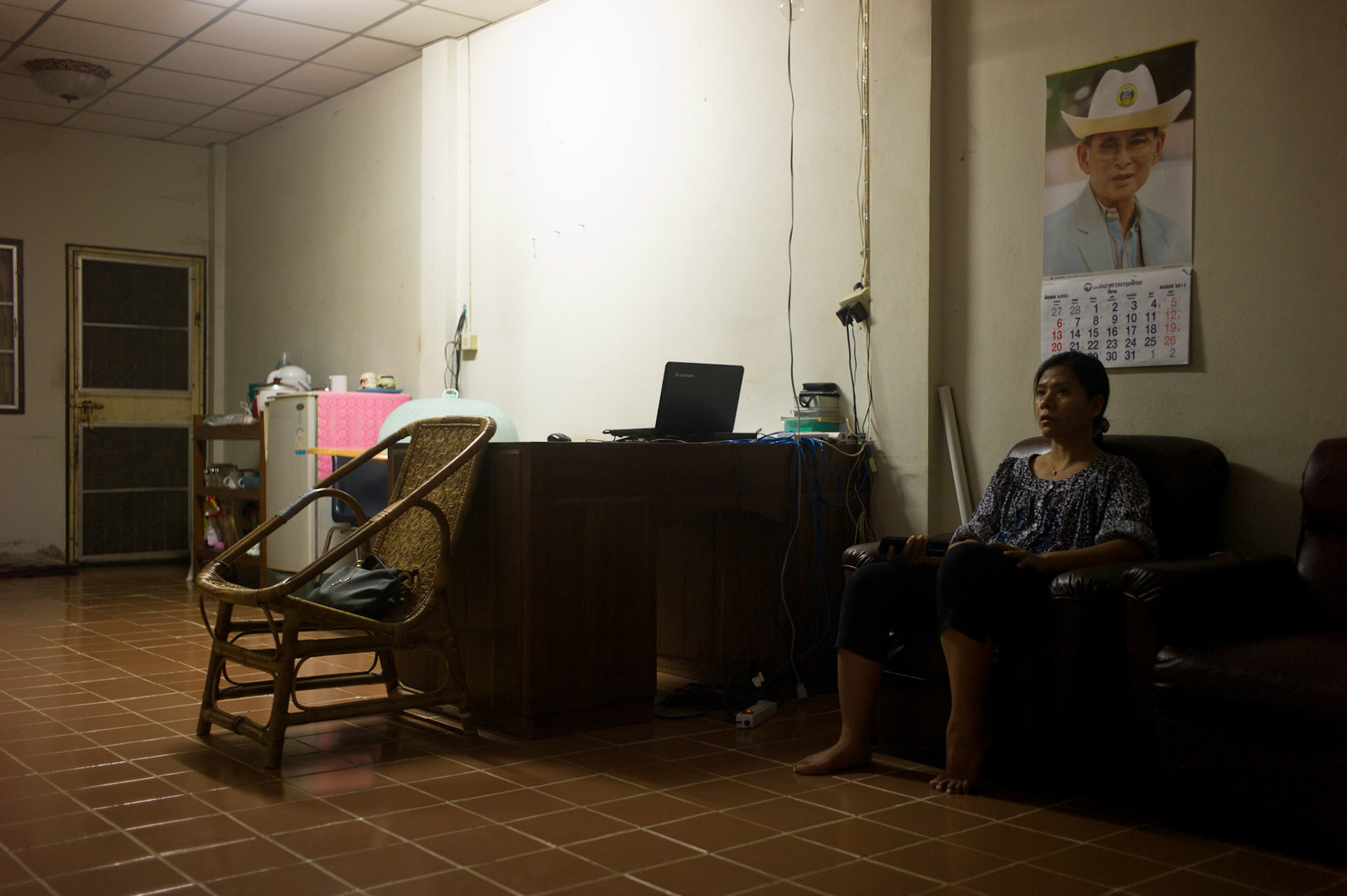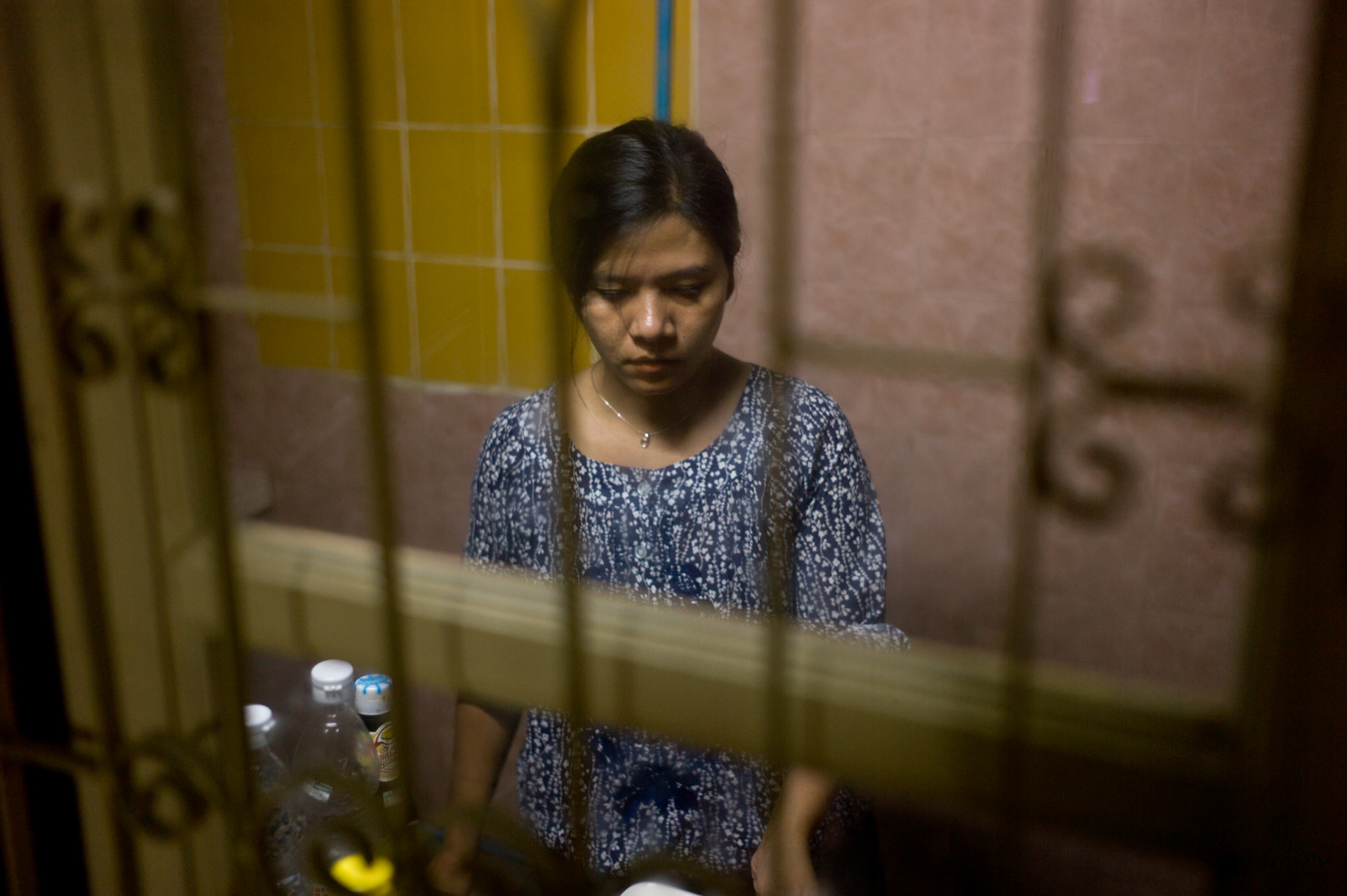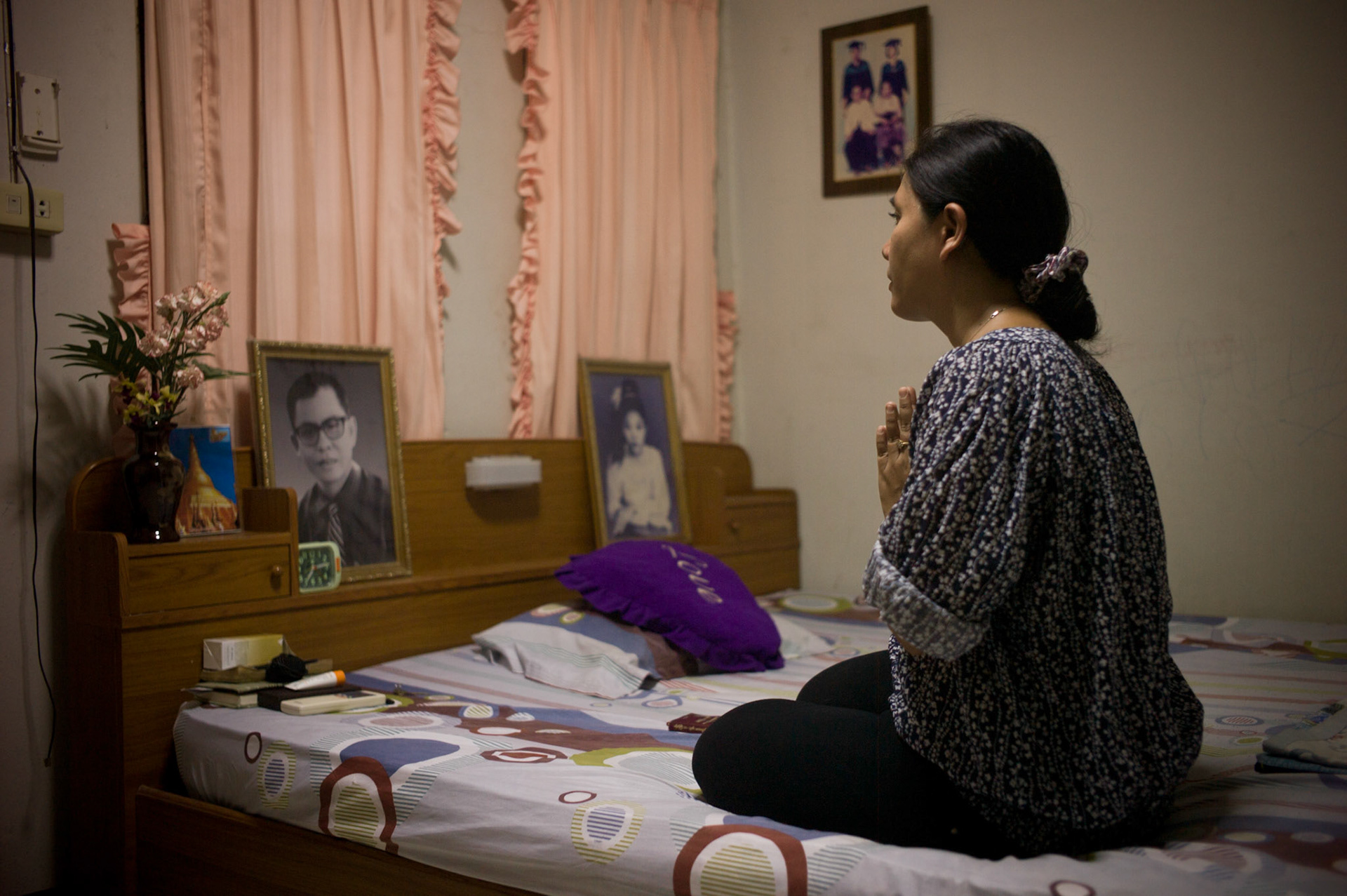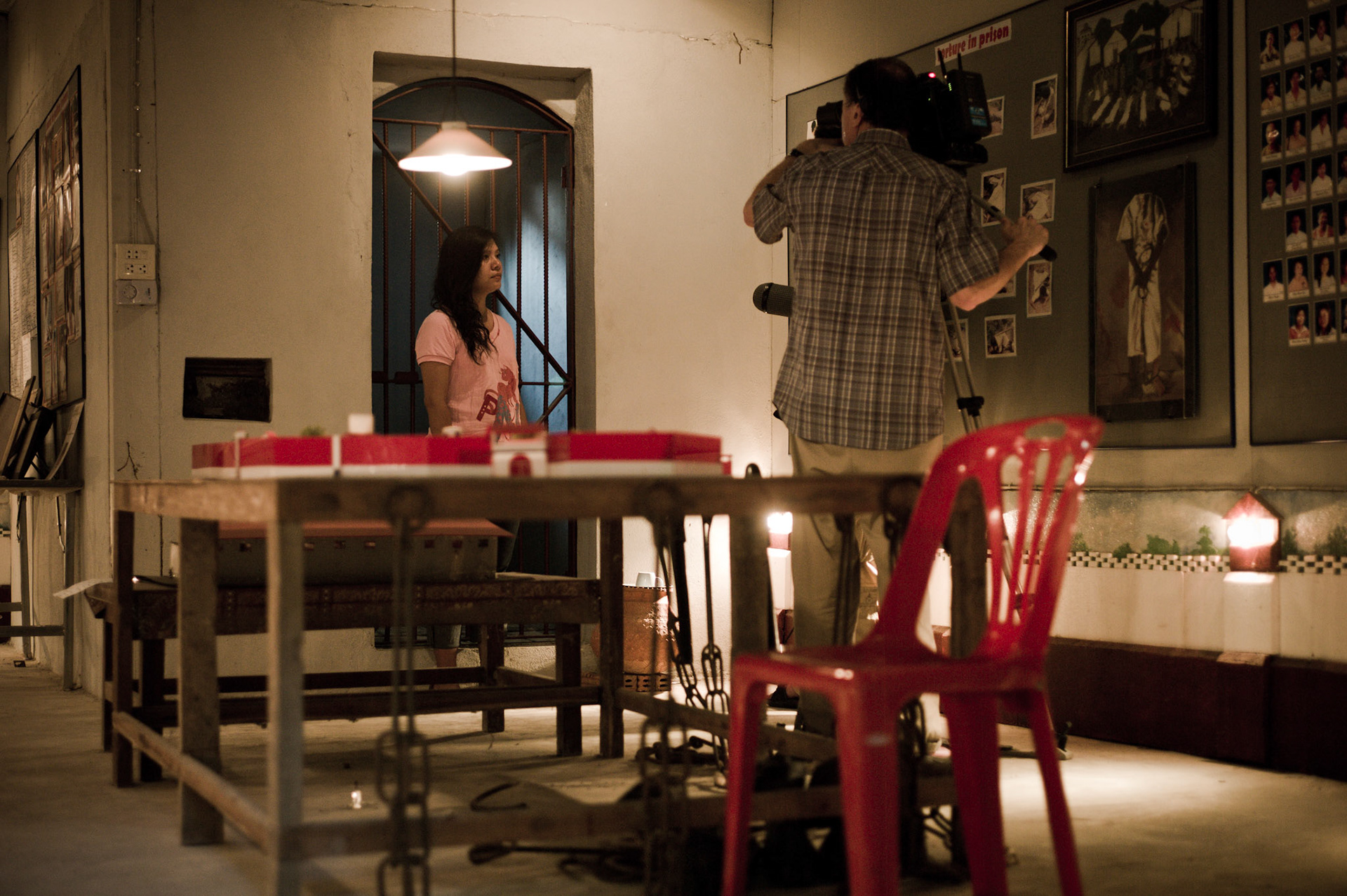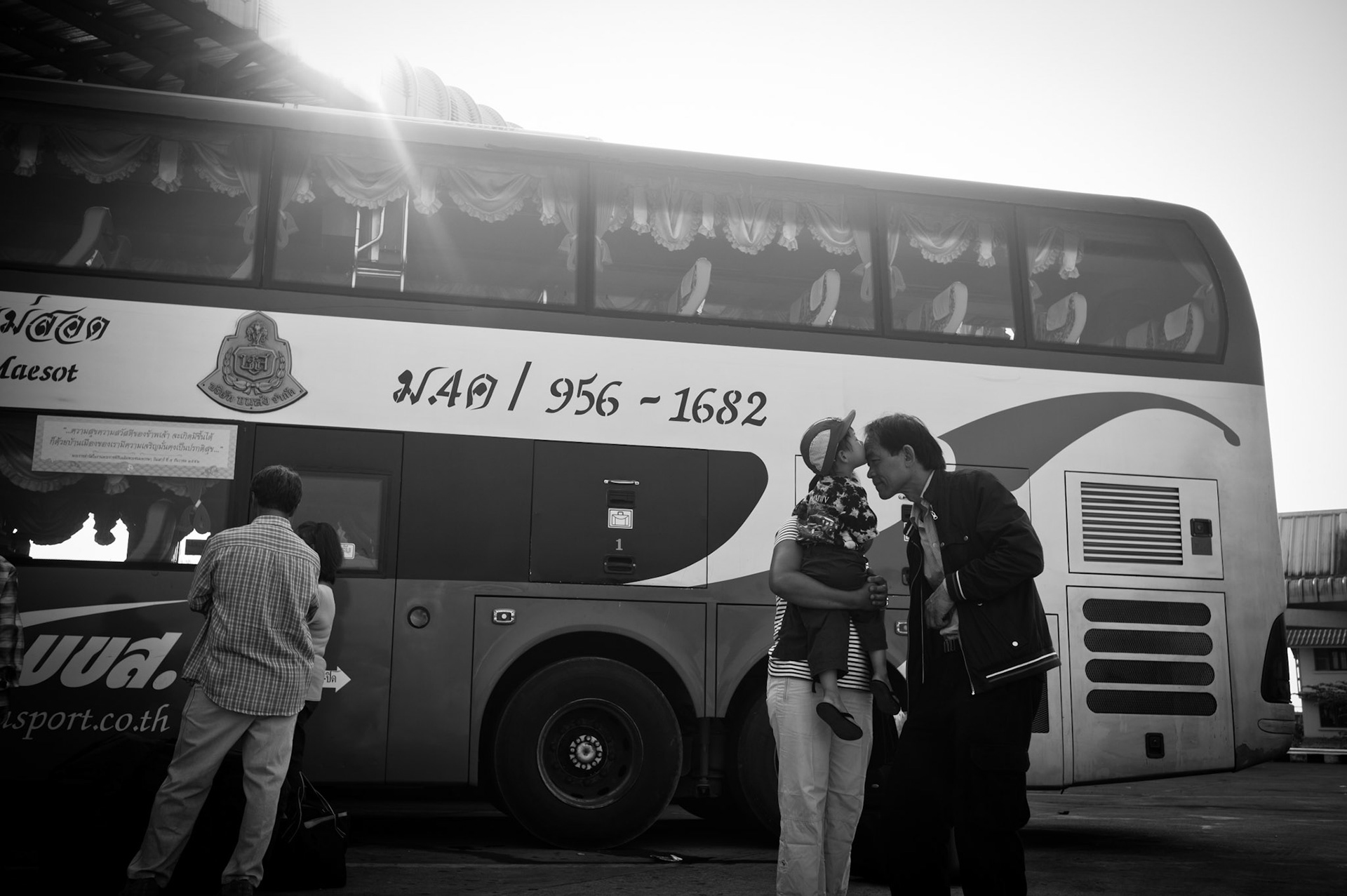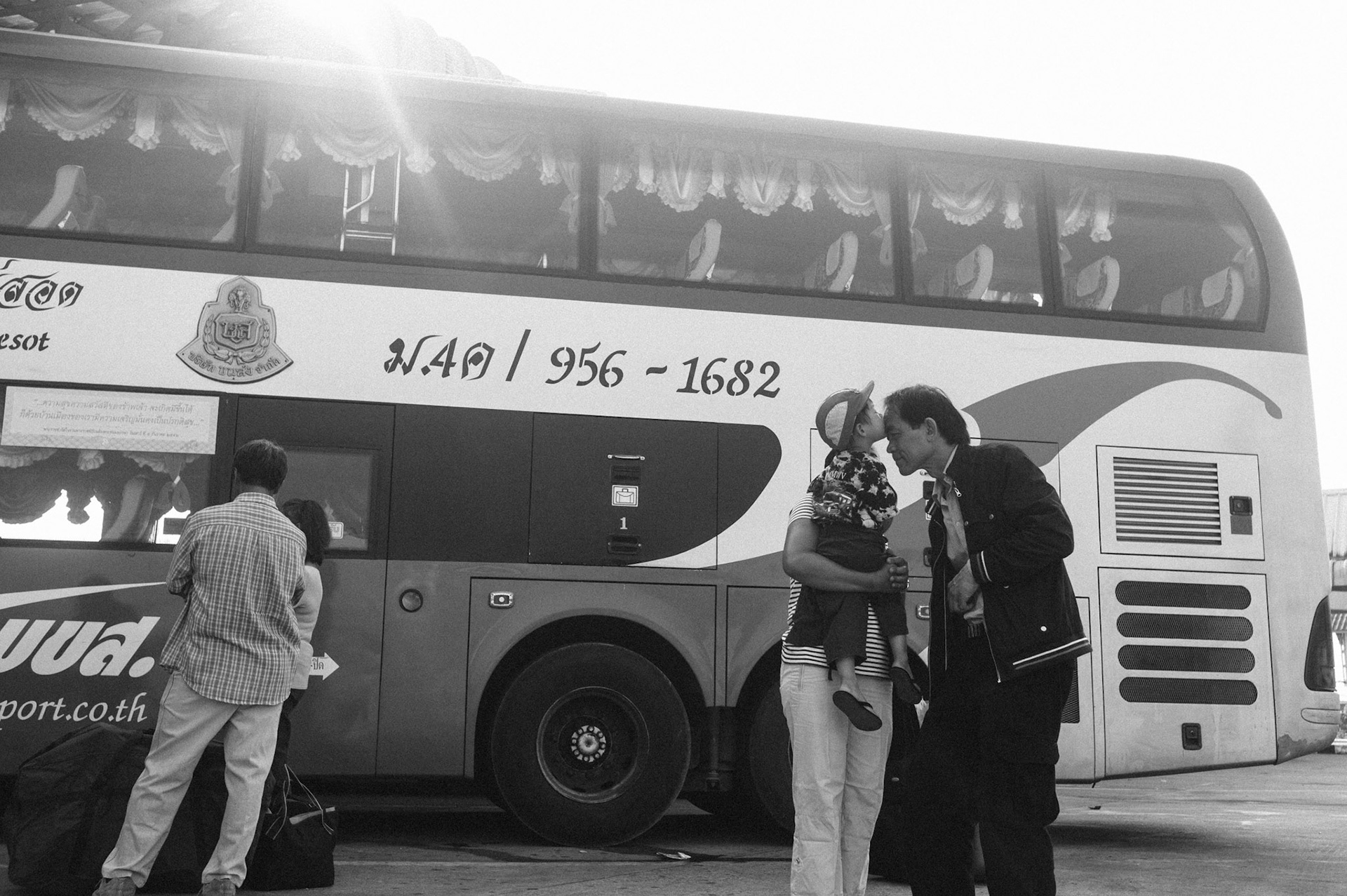
Khun Saing, a former medical student was jailed on three seperate occasions for his political activities spending more than 13 years in prison. He eventually fled Burma after his release in 2004 and met and married his wife Aye Aye Moe (also a former political prisoner) whilst living in Umpiem Mai refugee camp on the Thai-Burma border. Whilst Khun Saing has been resettled to the UK, his wife and young child remain in the camp, unrecognised as refugees and unable to be resettled with him. Now living in the UK, Khun Saing continues his lifelong fight to bring democracy to his country and now his own personal fight to get his family to join him.

Khun Saing, a former medical student was jailed on three seperate occasions for his political activities spending more than 13 years in prison. He eventually fled Burma after his release in 2004 and met and married his wife Aye Aye Moe (also a former political prisoner) whilst living in Umpiem Mai refugee camp on the Thai-Burma border. Whilst Khun Saing has been resettled to the UK, his wife and young child remain in the camp, unrecognised as refugees and unable to be resettled with him. Now living in the UK, Khun Saing continues his lifelong fight to bring democracy to his country and now his own personal fight to get his family to join him.

Khun Saing, a former medical student was jailed on three seperate occasions for his political activities spending more than 13 years in prison. He eventually fled Burma after his release in 2004 and met and married his wife Aye Aye Moe (also a former political prisoner) whilst living in Umpiem Mai refugee camp on the Thai-Burma border. Whilst Khun Saing has been resettled to the UK, his wife and young child remain in the camp, unrecognised as refugees and unable to be resettled with him. Now living in the UK, Khun Saing continues his lifelong fight to bring democracy to his country and now his own personal fight to get his family to join him.

Khun Saing, a former medical student was jailed on three seperate occasions for his political activities spending more than 13 years in prison. He eventually fled Burma after his release in 2004 and met and married his wife Aye Aye Moe (also a former political prisoner) whilst living in Umpiem Mai refugee camp on the Thai-Burma border. Whilst Khun Saing has been resettled to the UK, his wife and young child remain in the camp, unrecognised as refugees and unable to be resettled with him. Now living in the UK, Khun Saing continues his lifelong fight to bring democracy to his country and now his own personal fight to get his family to join him.

Soe Myint cradles his newborn baby at home in Umpiem Mai refugee camp on the Thai-Burma border. He fled Burma after his release from prison where he was jailed for 3 years for his political activities.

Khun Saing, a former medical student was jailed on three seperate occasions for his political activities spending more than 13 years in prison. He eventually fled Burma after his release in 2004 and met and married his wife Aye Aye Moe (also a former political prisoner) whilst living in Umpiem Mai refugee camp on the Thai-Burma border. Whilst Khun Saing has been resettled to the UK, his wife and young child remain in the camp, unrecognised as refugees and unable to be resettled with him. Now living in the UK, Khun Saing continues his lifelong fight to bring democracy to his country and now his own personal fight to get his family to join him.

Tun Lin Kyaw and his wife survive on basic rations in Umpiem Mai refugee camp. Political prisoners are not officially recognised as refugees by the UNHCR and are often left to have to pay their way to survive whilst in the camps.

Tun Lin Kyaw is a former political prisoner from Burma now living in exile in Umpiem Mai refugee camp on the Thai-Burma border. The former bodyguard of Aung San Suu Kyi was arrested in 2004 for performing a solo protest in Rangoon, demanding the release of all political prisoners. He was jailed in Insein prison for 3 years.

Tun Lin Kyaw was brutally tortured by Burma's infamous military intelligence when he was arrested that lead to having most of his right lung being removed. He received no medical treatment whilst in jail and nearly died from infection. Every day he has to dress his wound in a rudimentary fashion as healthcare is extremely limited in the camp.

Tun Lin Kyaw was brutally tortured by Burma's infamous military intelligence when he was arrested that lead to having most of his right lung being removed. He received no medical treatment whilst in jail and nearly died from infection. Every day he has to dress his wound in a rudimentary fashion as healthcare is extremely limited in the camp.

The injuries he suffered whilst tortured under interrogation lead to the removal of two of the three lobes in his right lung. The open wound needs urgent medical treatment but whilst waiting for resettlement to a third country he has to care for himself.

Tun Lin Kyaw is a former political prisoner from Burma now living in exile in Umpiem Mai refugee camp on the Thai-Burma border. The former bodyguard of Aung San Suu Kyi was arrested in 2004 for performing a solo protest in Rangoon, demanding the release of all political prisoners. He was jailed in Insein prison for 3 years.

Thin Min Soe and her husband Soe Myint also a former political prisoners had their first child in December 2011. The sudden two month premature birth in basic conditions in the camp almost lead to the death of both mother and child.

Thin Min Soe, a former human rights and labour activist from Rangoon was arrested in 2006 for delivering documents demanding labour rights and an instruction to form a Teachers Union to the National League for Democracy. She was sentenced to 11 years in prison.

Umpiem Mai refugee camp offers little hope to the thousands of refugees, many who have been living there for over 10 years. For former political prisoners life is precarious as they are not officially recognised as refugees and could be sent back to Burma at any moment.

Like most Burmese, buddhism plays an important role in daily life. Thin Min Soe and her husband Soe Myint also a former political prisoner from Burma make offerings every morning from the meagre rations that they receive.

Soe Lwin was arrested aged just 14 for distributing pro-democracy pamphlets in Rangoon, Burma in 1994. He was sentenced to 24 years in prison and was jailed for 15 years and eight months in three different prisons until he was released on 18th September 2009. He fled Burma and now lives a precarious life in exile as an unregistered refugee in Mae Sot on the Thai-Burma border.

Soe Lwin was arrested aged just 14 for distributing pro-democracy pamphlets in Rangoon, Burma in 1994. He was sentenced to 24 years in prison and was jailed for 15 years and eight months in three different prisons until he was released on 18th September 2009. He fled Burma and now lives a precarious life in exile as an unregistered refugee in Mae Sot on the Thai-Burma border.

Many children in Burma do not receive an education due to the extreme levels of poverty and so are forced to work at any early age. Soe Lwin takes English classes twice a day as he hopes to one day re-settle to a third country where he can continue the struggle for democracy in Burma.

Soe Lwin lives in a safe house in Mae Sot on the Thai-Burma border with his friend, Thiha, who is also a political prisoner who served more than 17 years in prison for delivering a statement from Aung San Suu Kyi to opposition parties.

Now aged 30, Soe Lwin has spent over half of his life in prison. With little or no education other than that which was taught to him by his fellow inmates in Insein prison he studies English and computer classes for five hours every day.

Thiha, a former political prisoner from Burma who spent more than 17 years in jail, now runs an organisation our of a safe house in Mae Sot to help former political prisoners who have fled Burma to the Thai border.

Despite living in exile hiding in safe houses, many former political prisoners continue their activities with their networks inside Burma.

A monk for most of his life, U Zawana was arrested in 1993 for meeting the UN official Mr Yozo Yokota. He was sentenced to 29 years in prison and served more than 16 years before fleeing to the Thai-Burma border in 2009 shortly after his release.

Burmese monks are not allowed to live in monasteries in Thailand, however U Zawana continues his monk life and Buddhist practice each day in the safe house that he now lives in on the Thai-Burma border.

He shares the safe house with his fellow monk U Sandawbartha. He was jailed the day after U Zawana, also being sentenced to 29 years in prison. He spent most of his 16 years in prison with his colleague U Zawana and they fled Rangoon together to the relative safety of the Thai-Burma border.

U Sandawbartha was arrested in 1993 and sentenced to 29 years in prison for his political activities. He was jailed for 16 years in Insein and Tharawaddy prisons. After his release from prison he was forced to flee Burma and now lives in exile in a safe house on the Thai-Burma border

Despite living in exile hiding in safe houses, many former political prisoners continue their activities with their networks inside Burma.

Aye Min Soe, a former political prisoner who was jailed for 4 years for his political activities, was one of the cameraman who worked as a VJ during the Saffron Revolution in 2007. He fled Burma soon after and now works in the secret offices on the Thai-Burma border

Each day DVB broadcasts satellite news and current affairs programmes into Bruma to counter the regime's propaganda on state controlled TV channel MRTV

Each day DVB broadcasts satellite news and current affairs programmes into Bruma to counter the regime's propaganda on state controlled TV channel MRTV

Aye Min Soe, a former political prisoner who was jailed for 4 years for his political activities, was one of the cameraman who worked as a VJ during the Saffron Revolution in 2007. He fled Burma soon after and now works in the secret offices on the Thai-Burma border

Khin Cho Myint, now works for the Assistance Association for Political Prisoners (AAPP), a human rights organisation based on the Thai-Burma border that monitors and provides assistance to political prisoners and their families in Burma.

Khin Cho Myint, also known as Zulu, was arrested in 1998 for her role in student demonstrations and was sentenced to ten years in prison. She fled Burma in 2008 after her involvement in the Saffron Revolution when the authorities came looking for her once again.

Life re-adjusting to brutal treatment in Burma's notorious prisons can be hard and one of solitude. Zulu shares her house with two colleagues who have recently fled Burma and are currently in hiding from the Burmese inteligence officers who patrol the streets of Mae Sot.

Khin Cho Myint, also known as Zulu, was arrested in 1998 for her role in student demonstrations and was sentenced to ten years in prison. She fled Burma in 2008 after her involvement in the Saffron Revolution when the authorities came looking for her once again.

Photographs of her parents were recently smuggled out of Burma for her. Most former political prisoners flee the country with nothing more than the clothes on their back and some money. They cannot risk carrying any documentation with them in case they are caught whilst trying to leave the country.

As a former political prisoner much of her time is spent working for her colleagues who still remain bars through advocacy work at AAPP, which often includes being interviewed and showing guests around the small museum.

Khun Saing, a former medical student was jailed on three seperate occasions for his political activities spending more than 13 years in prison. He eventually fled Burma after his release in 2004 and met and married his wife Aye Aye Moe (also a former political prisoner) whilst living in Umpiem Mai refugee camp on the Thai-Burma border. Whilst Khun Saing has been resettled to the UK, his wife and young child remain in the camp, unrecognised as refugees and unable to be resettled with him. Now living in the UK, Khun Saing continues his lifelong fight to bring democracy to his country and now his own personal fight to get his family to join him.

Khun Saing, a former medical student was jailed on three seperate occasions for his political activities spending more than 13 years in prison. He eventually fled Burma after his release in 2004 and met and married his wife Aye Aye Moe (also a former political prisoner) whilst living in Umpiem Mai refugee camp on the Thai-Burma border. Whilst Khun Saing has been resettled to the UK, his wife and young child remain in the camp, unrecognised as refugees and unable to be resettled with him. Now living in the UK, Khun Saing continues his lifelong fight to bring democracy to his country and now his own personal fight to get his family to join him.
